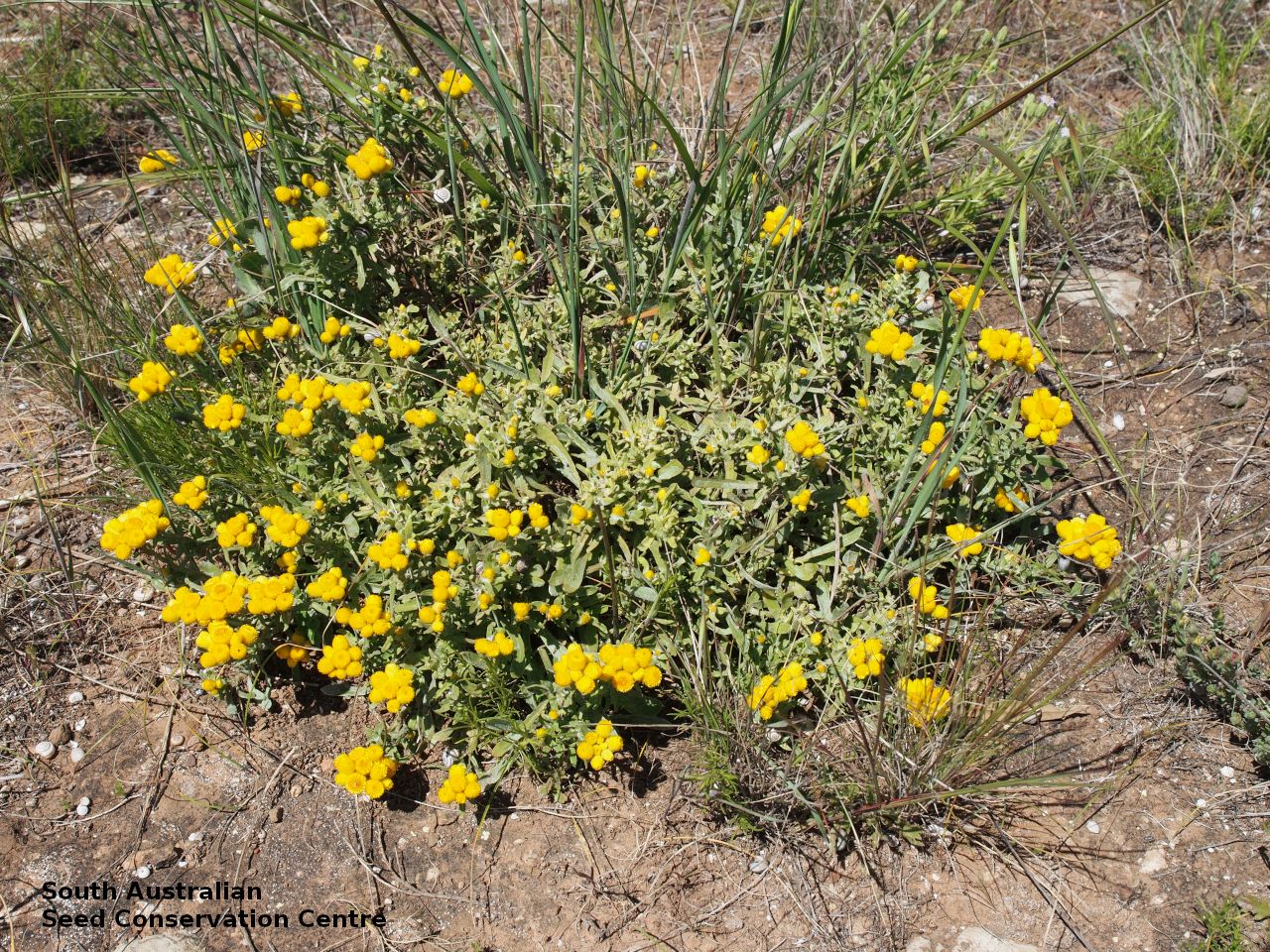
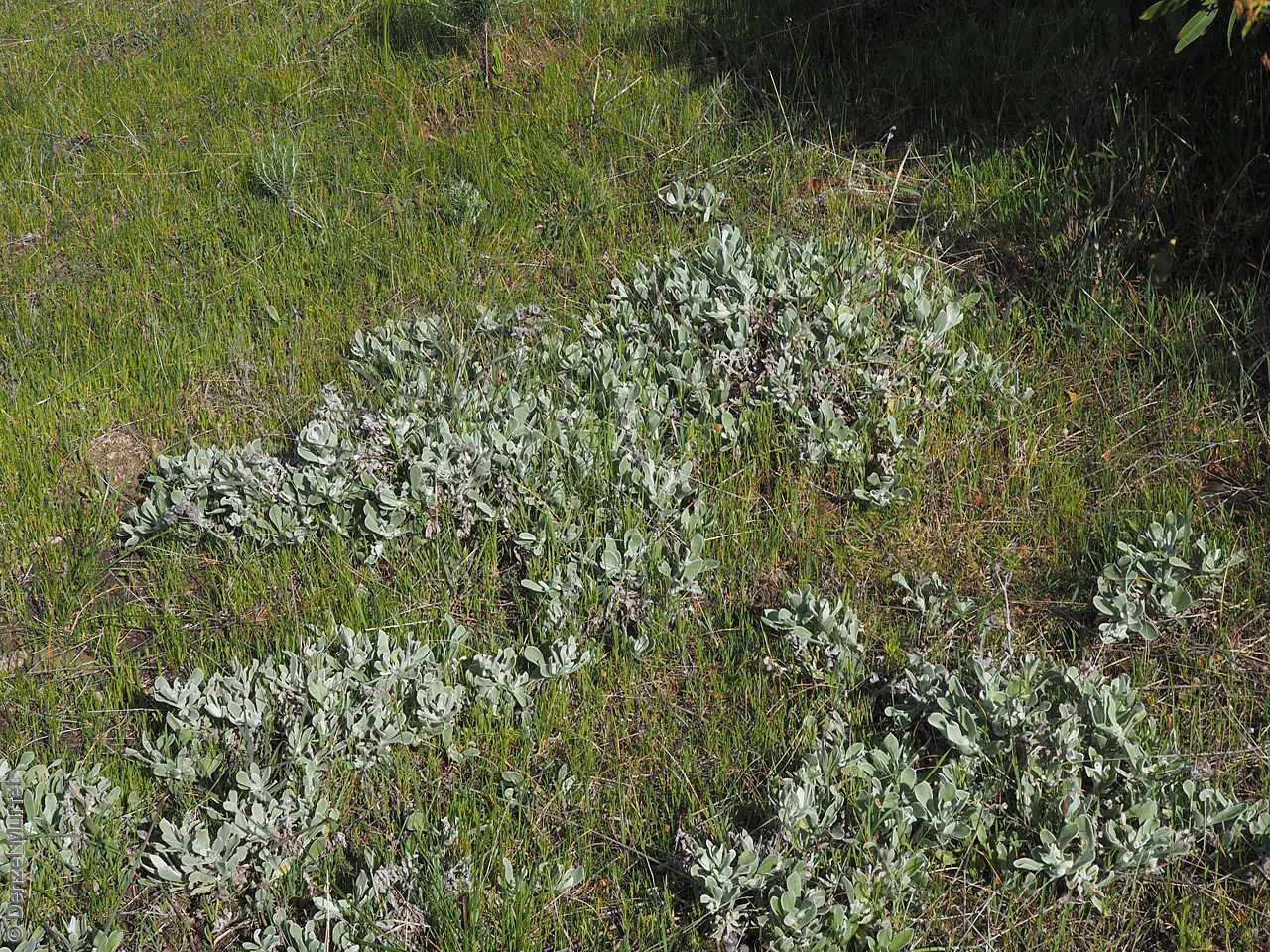
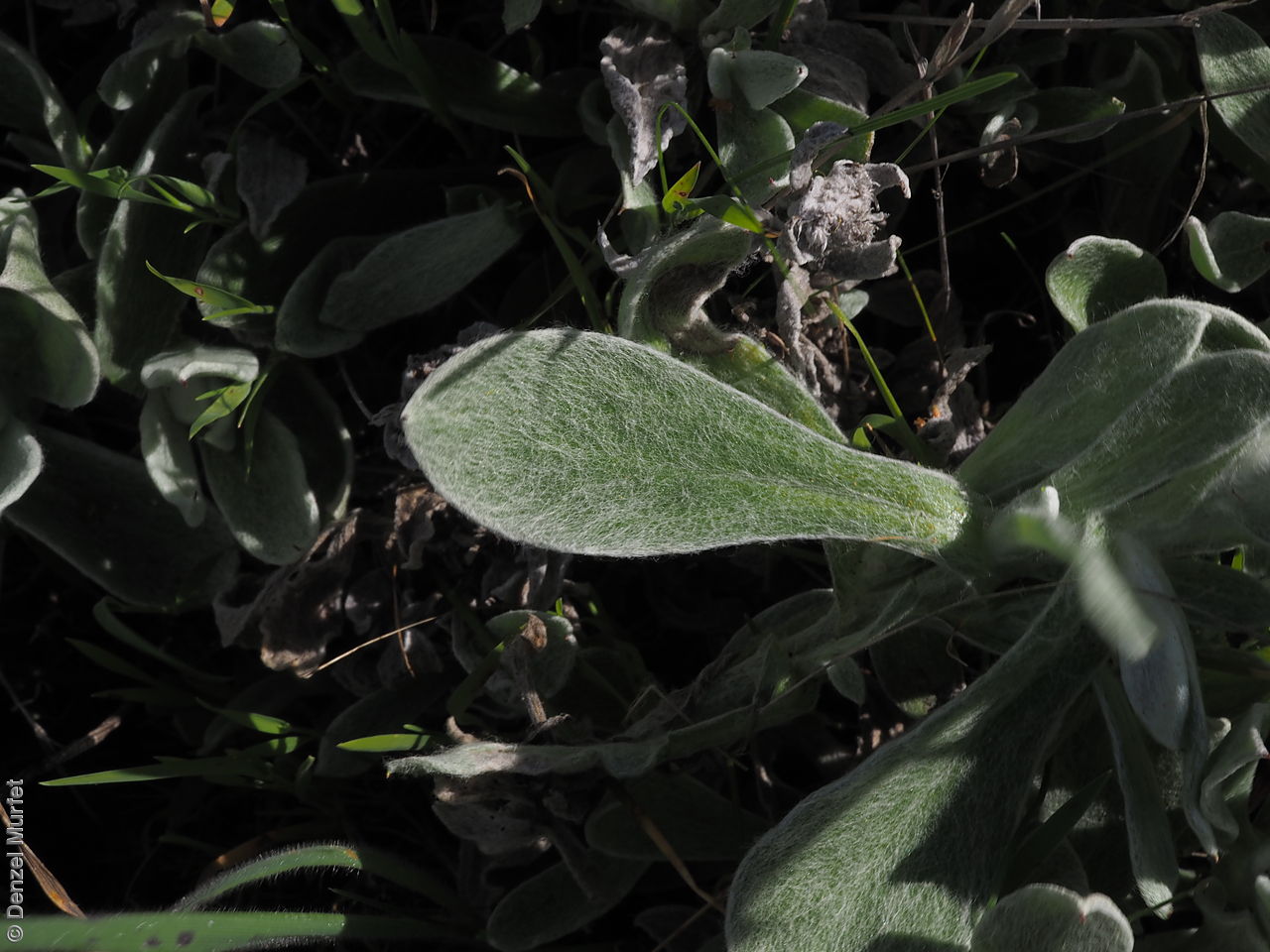
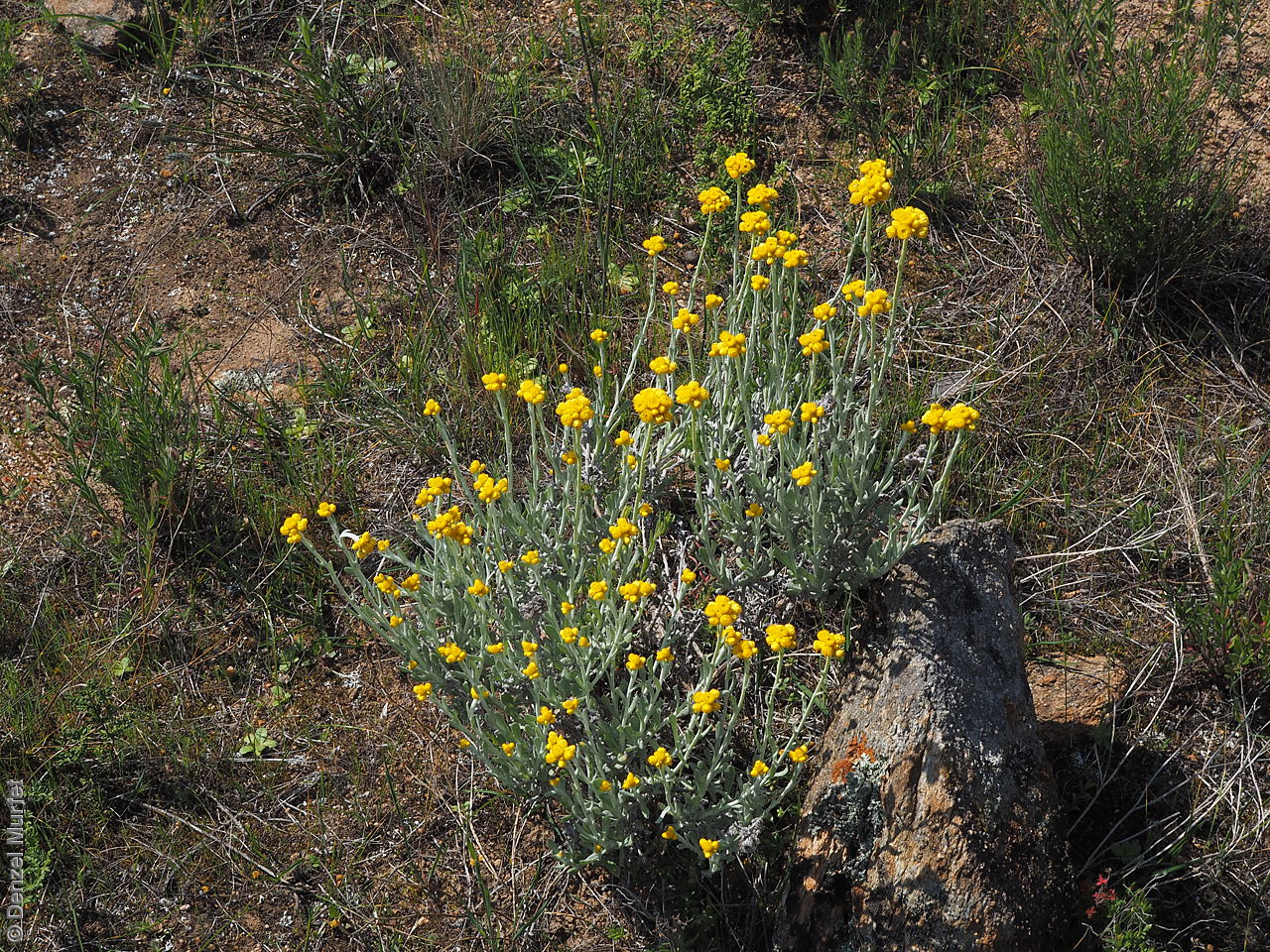
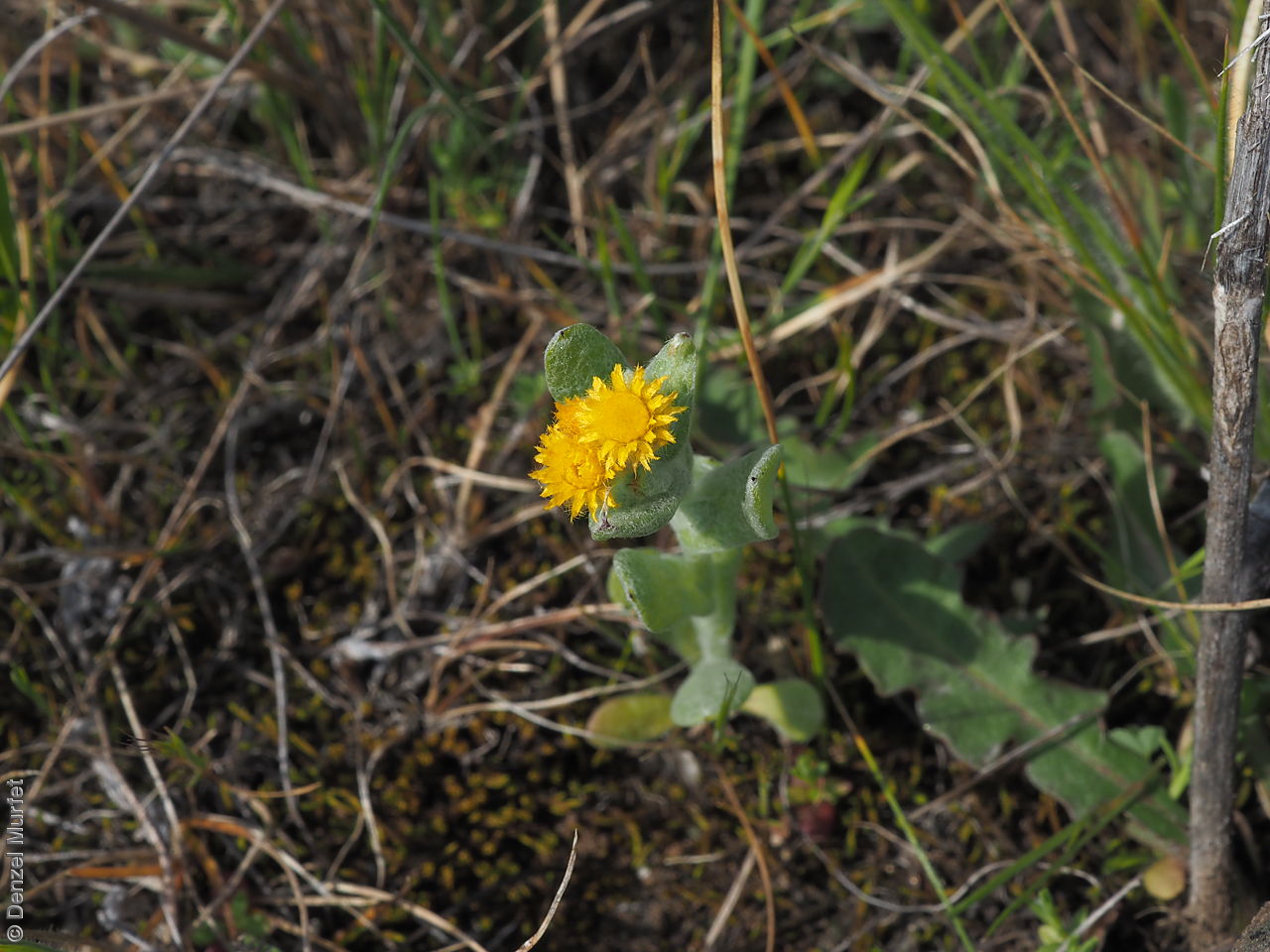
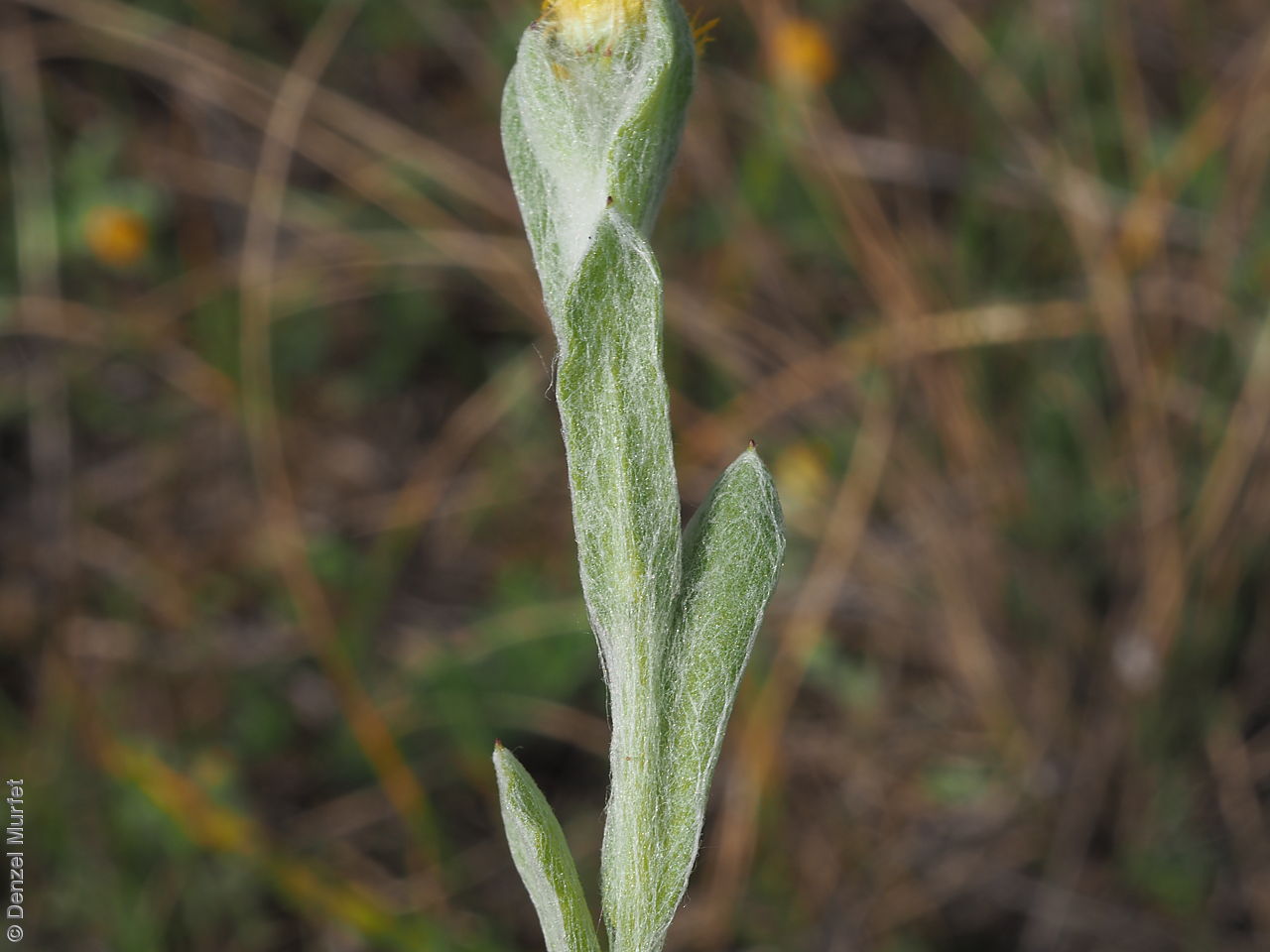
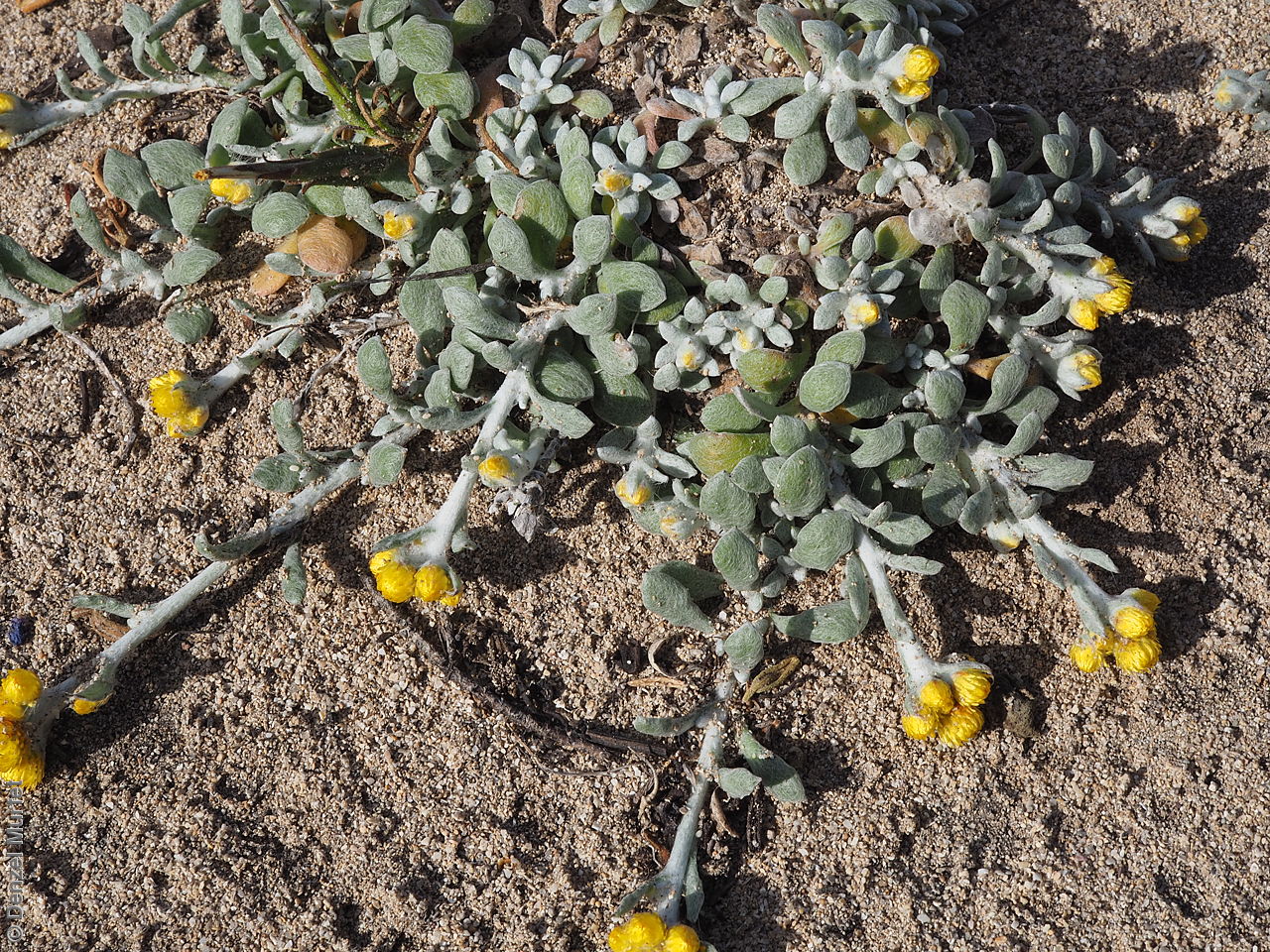
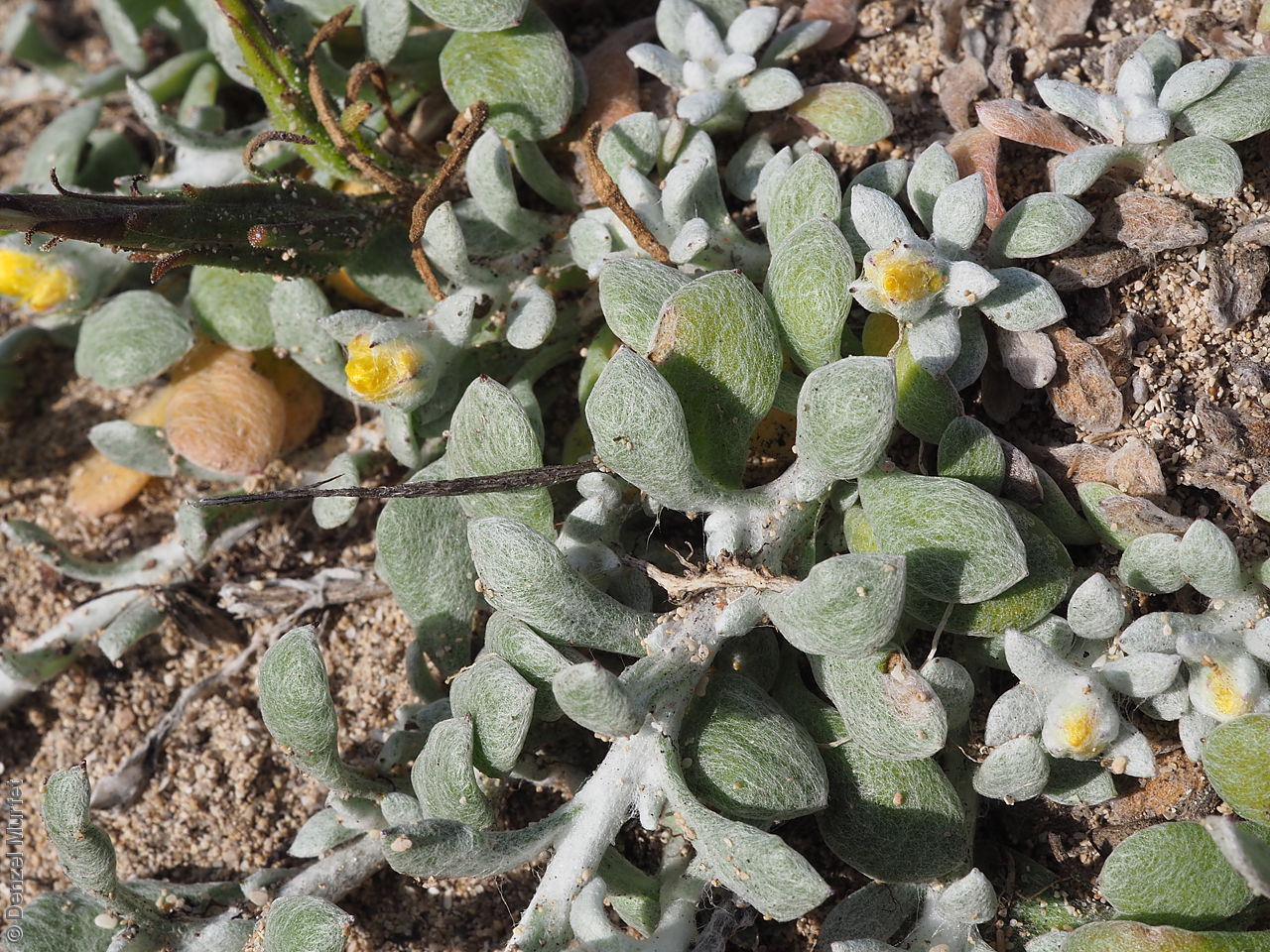
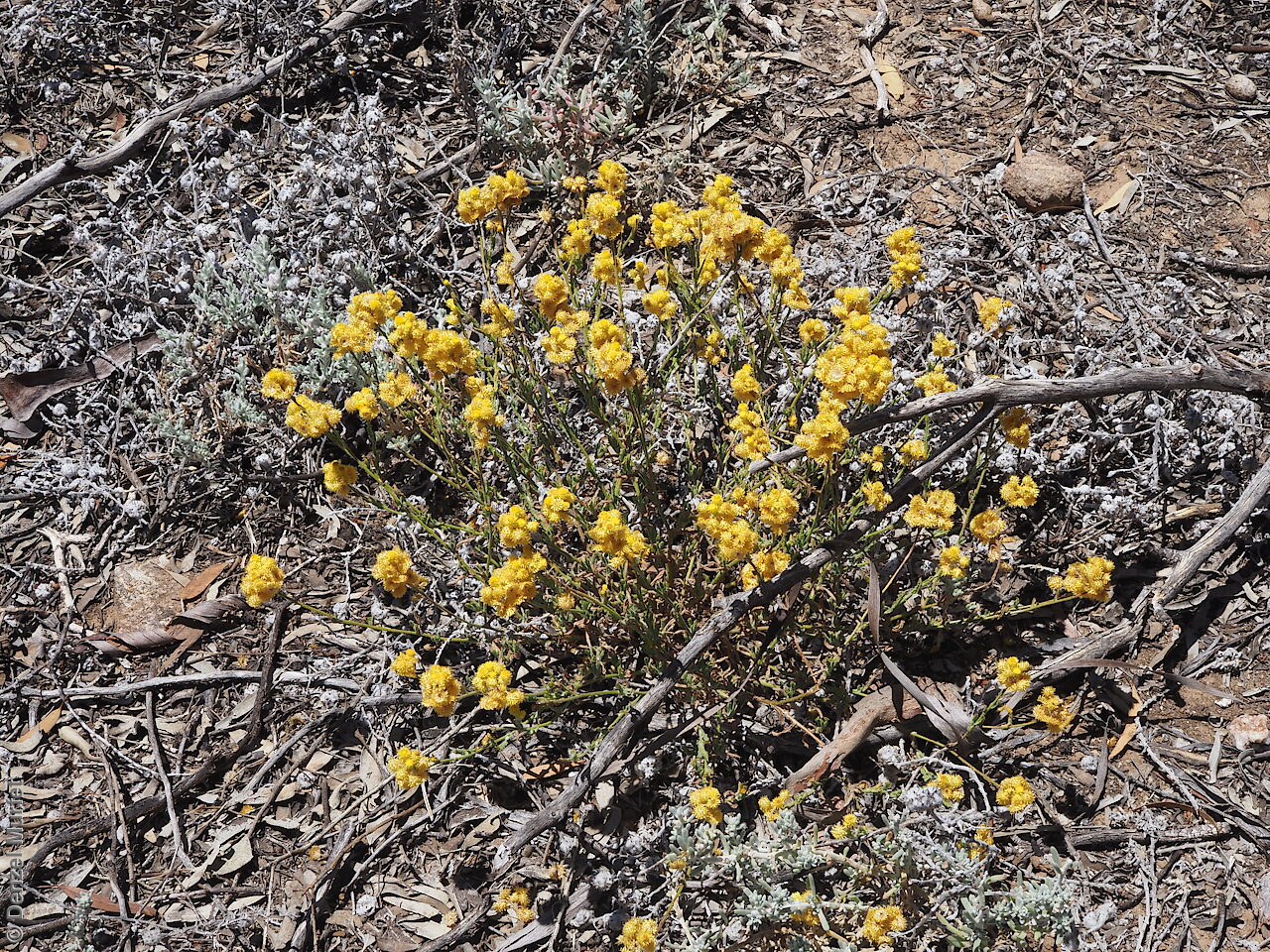
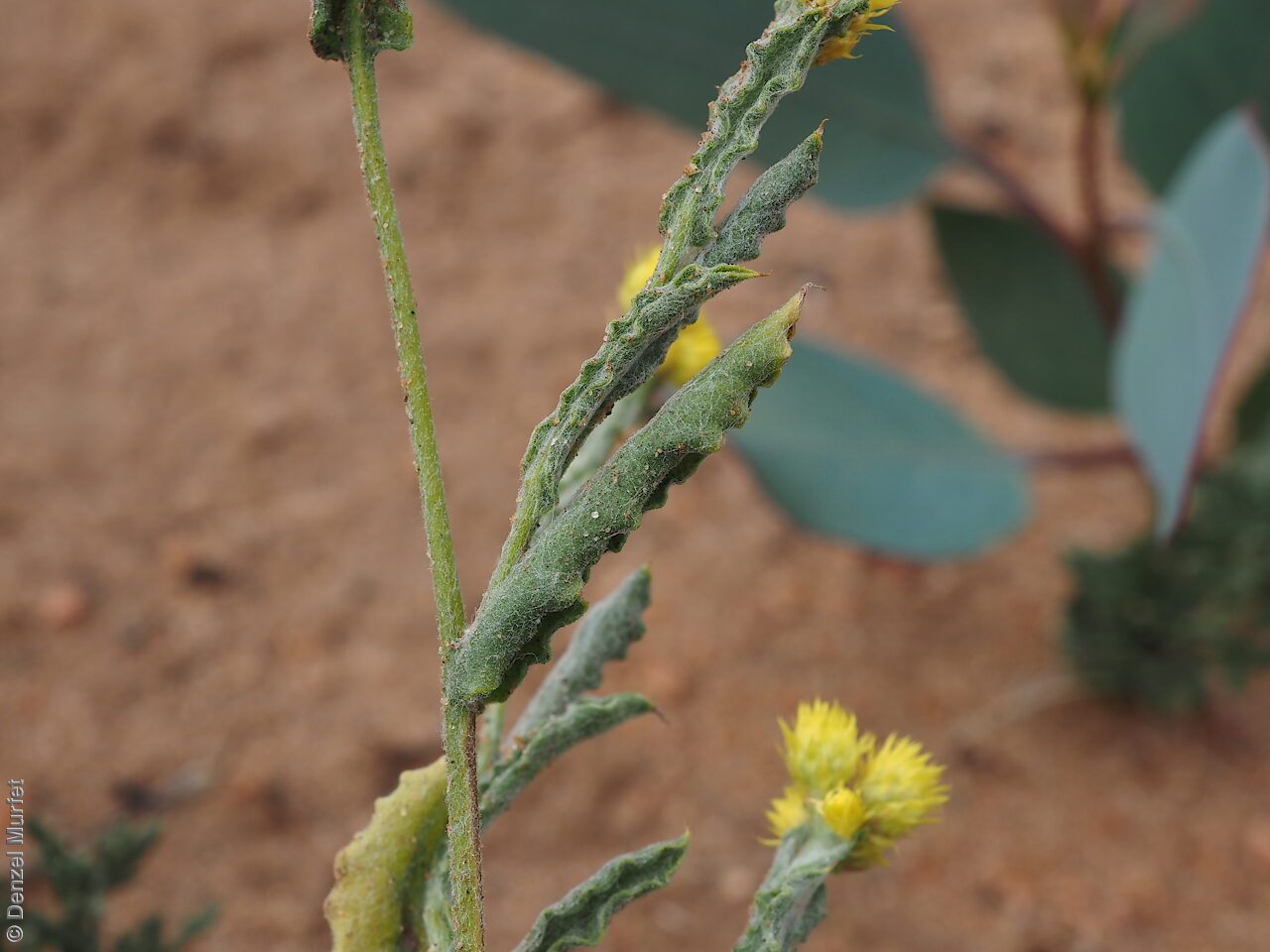
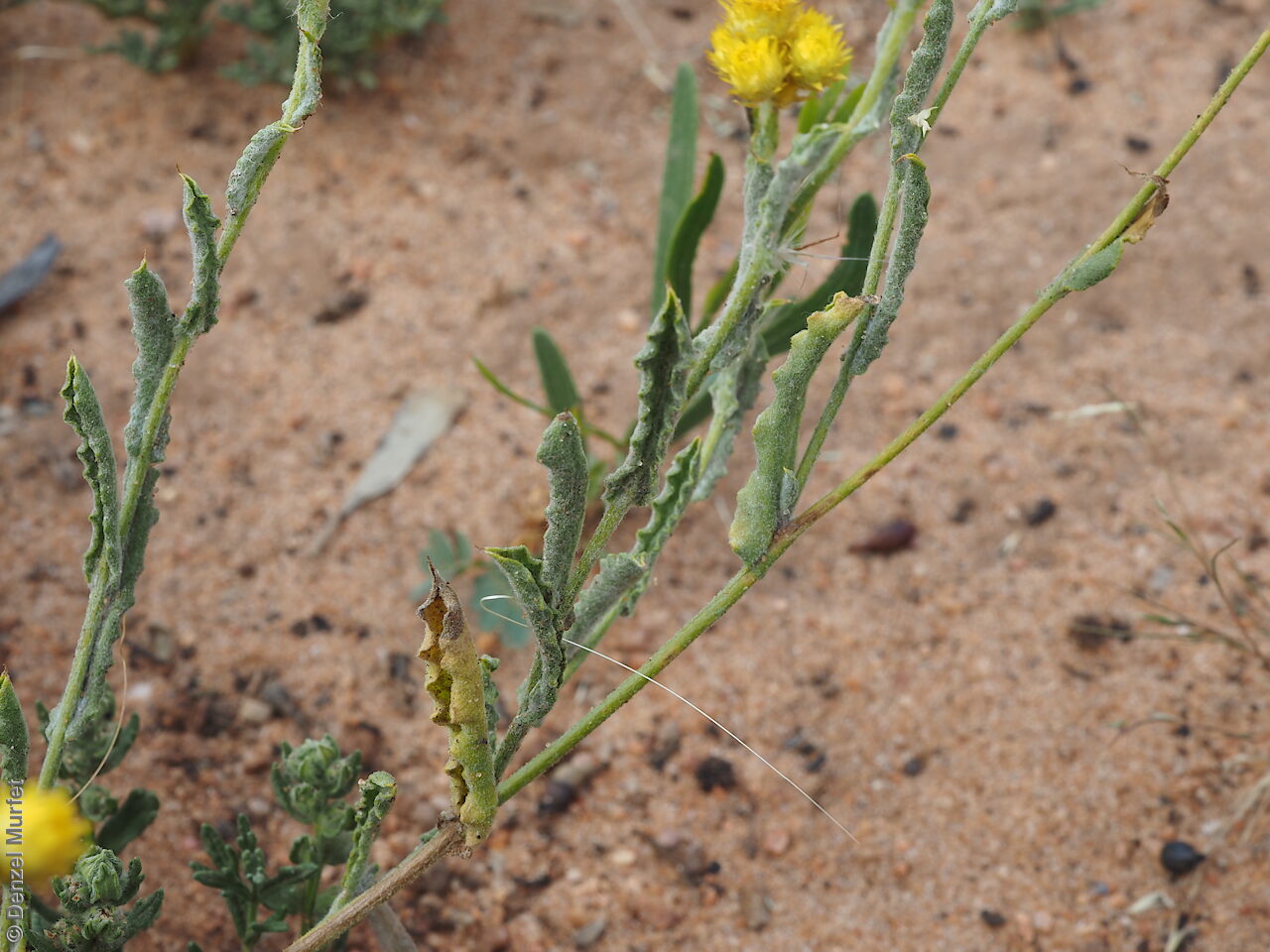
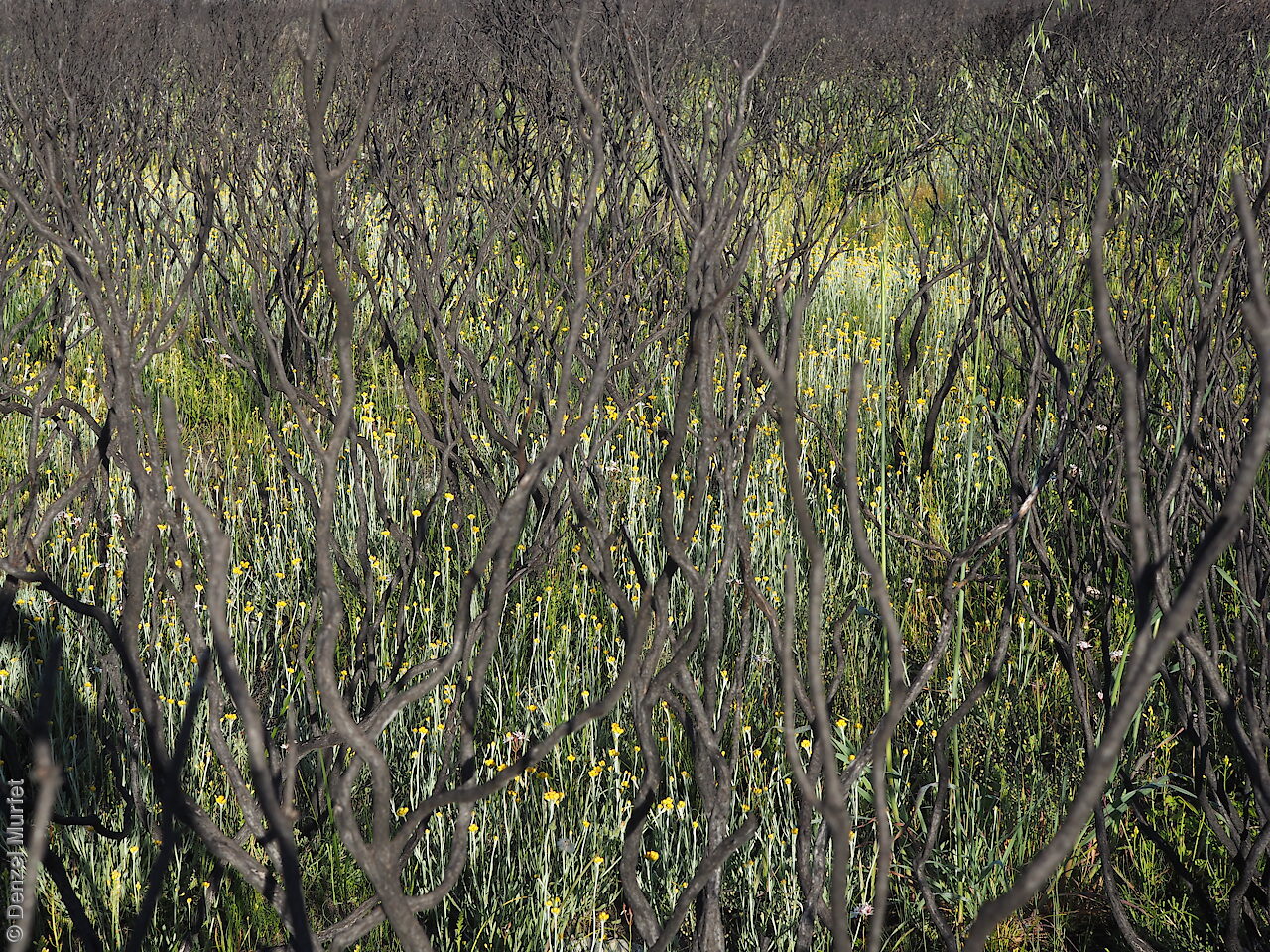
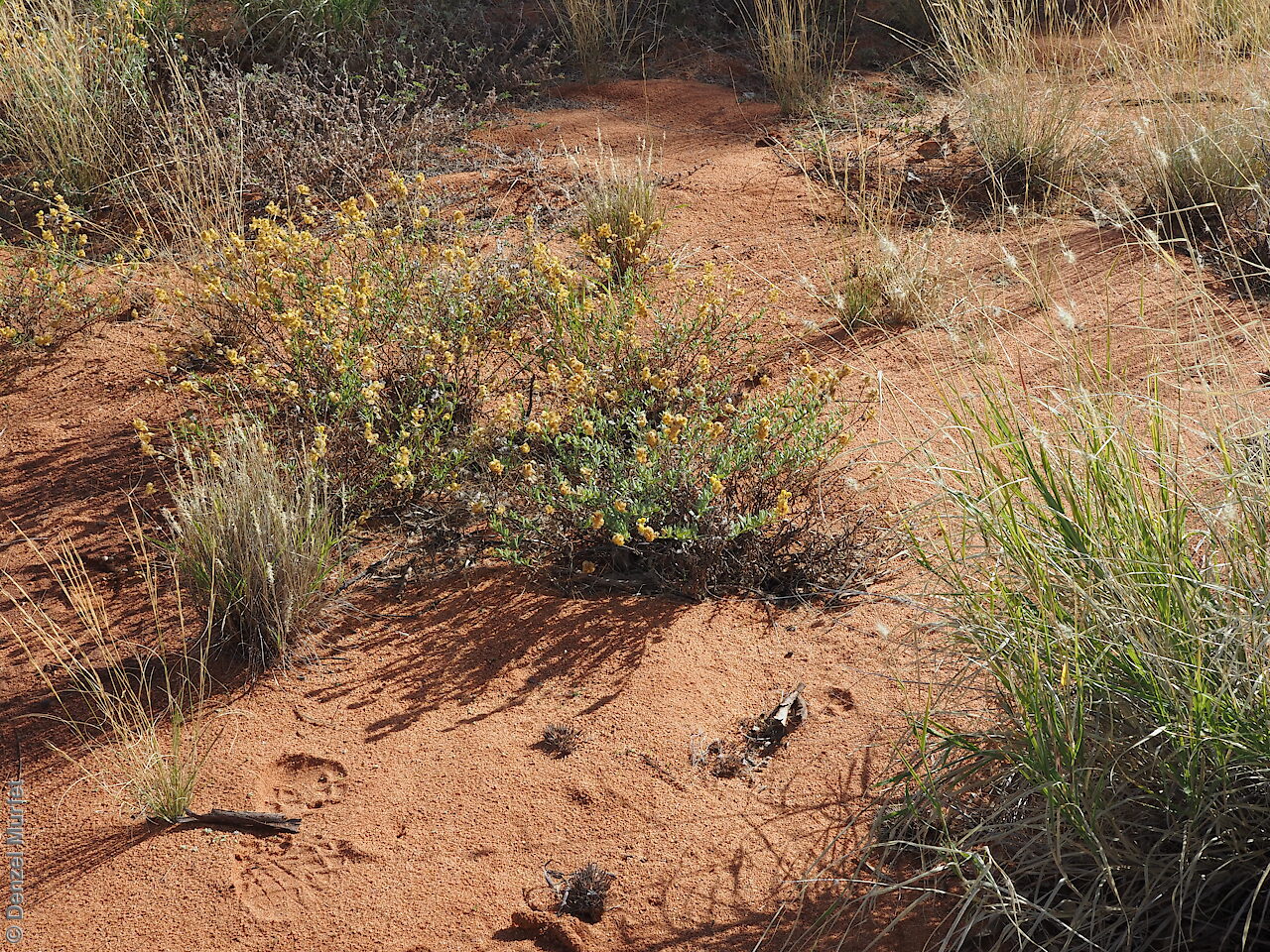
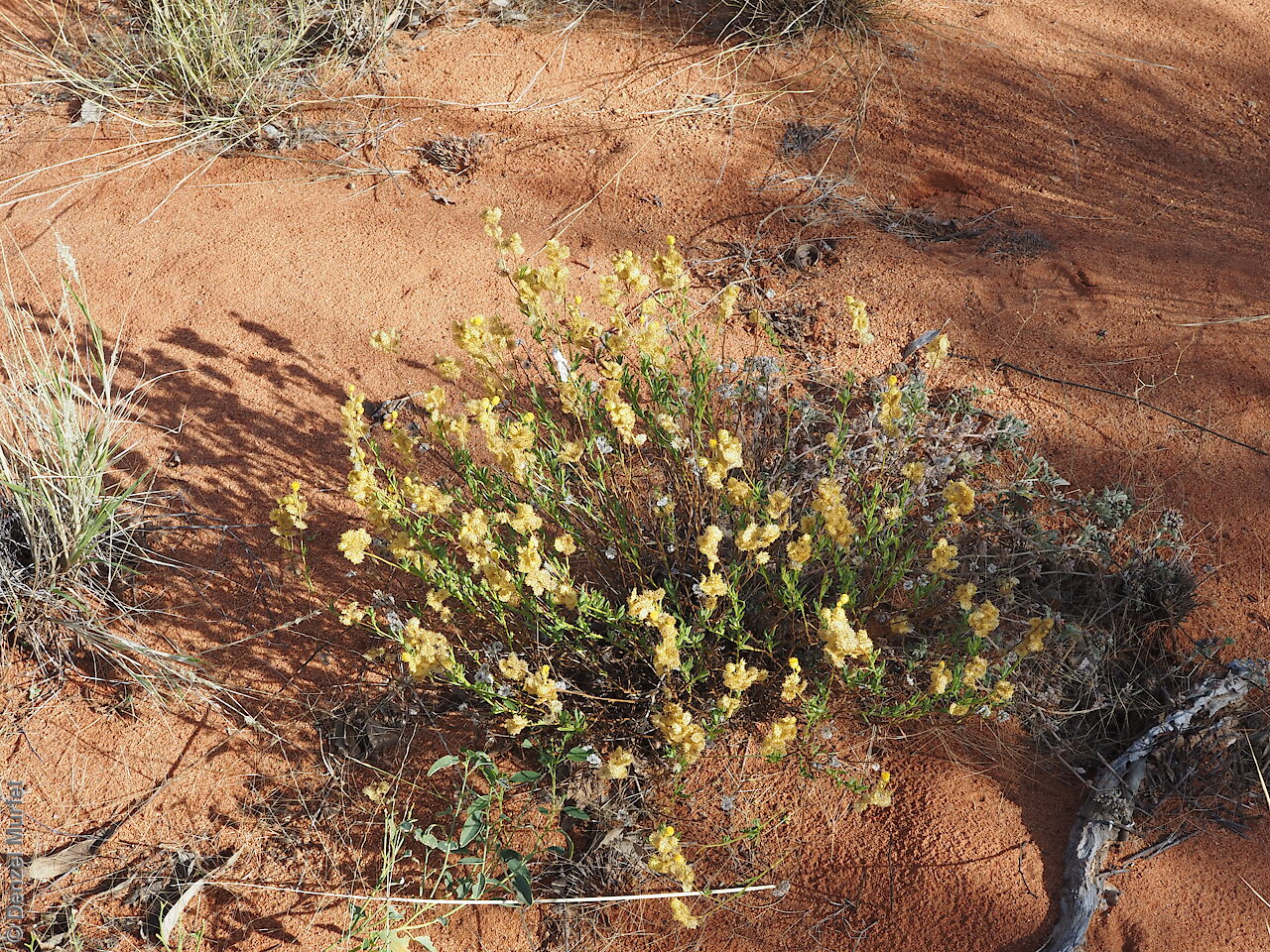
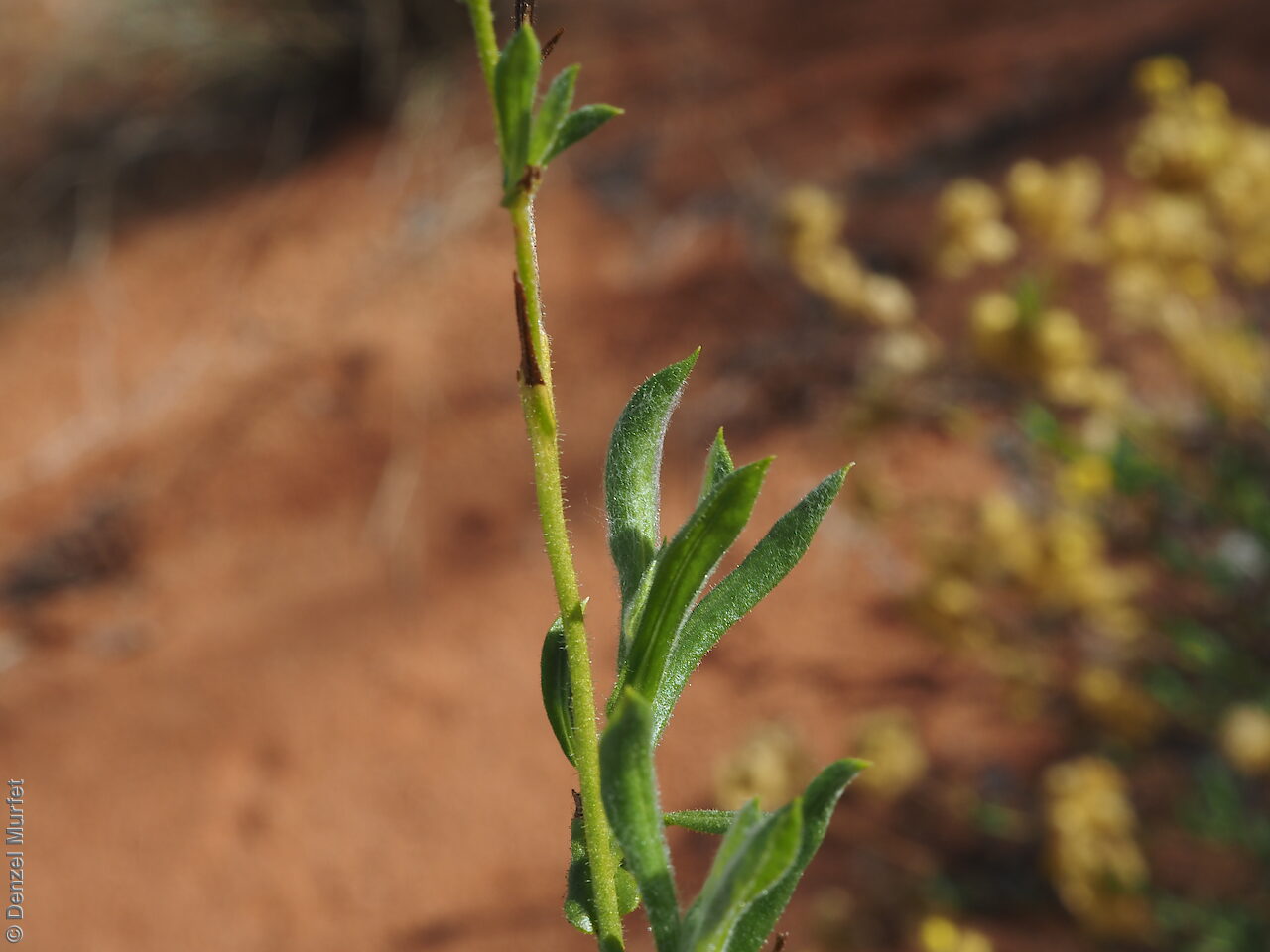
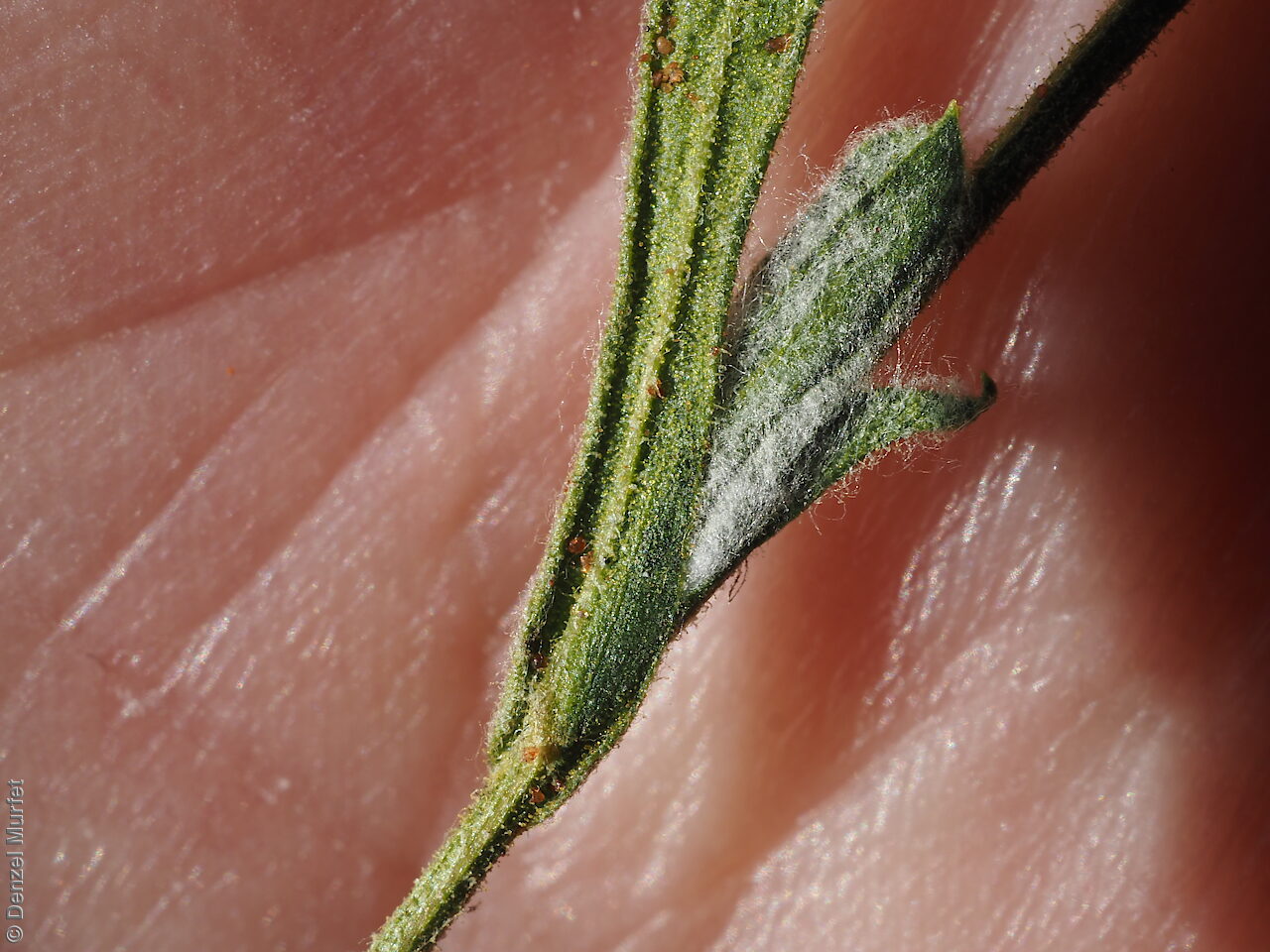
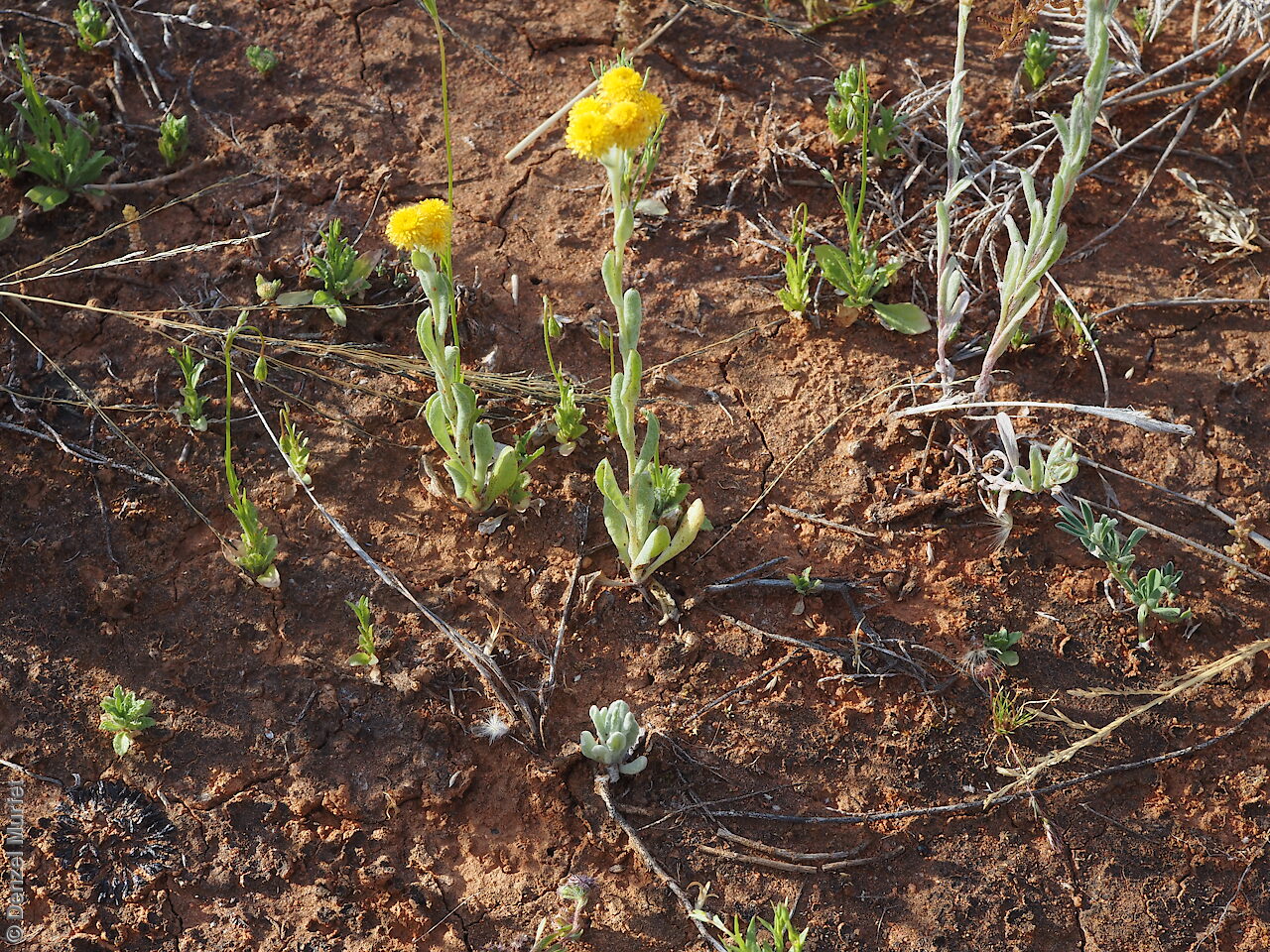
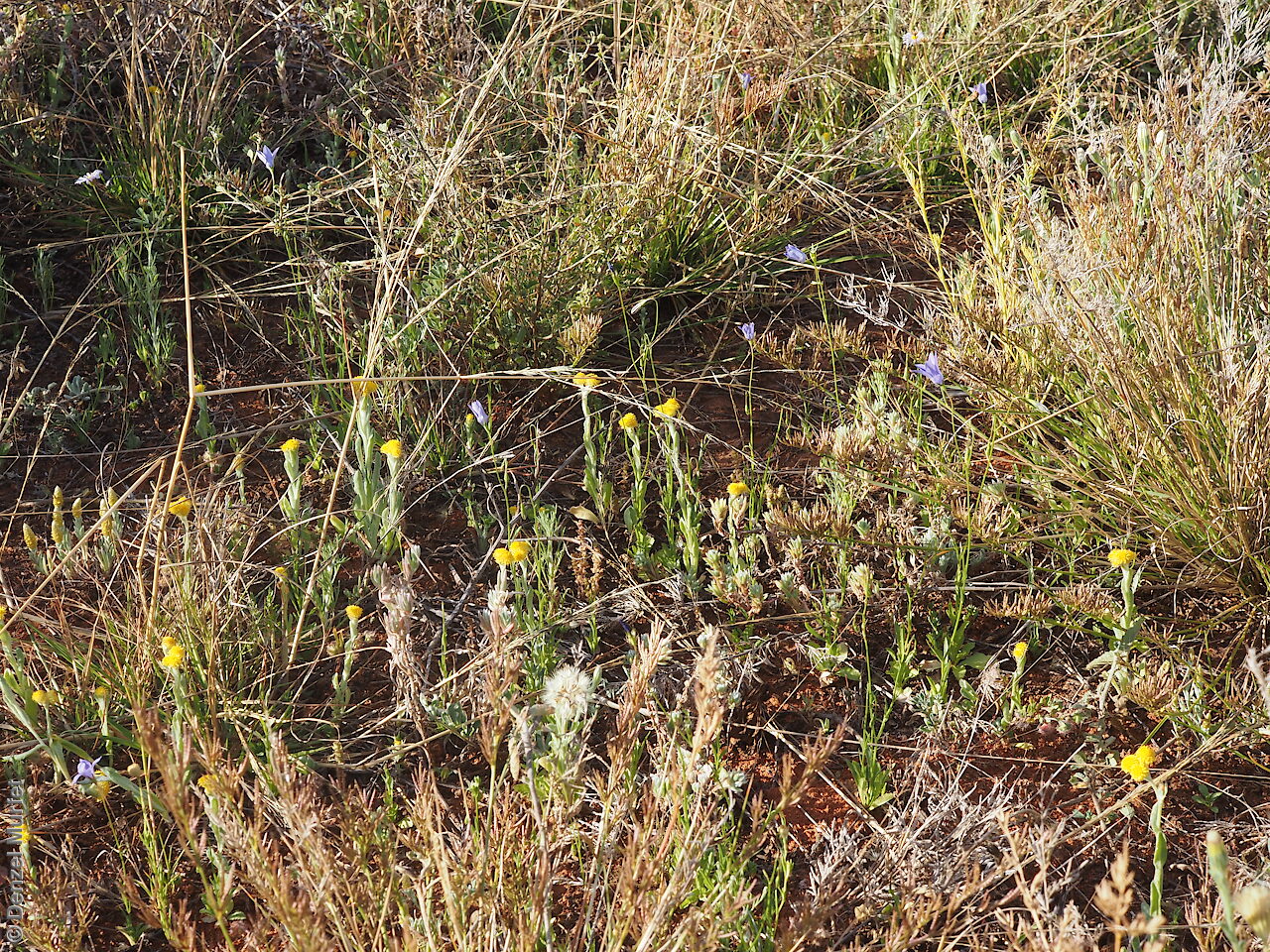
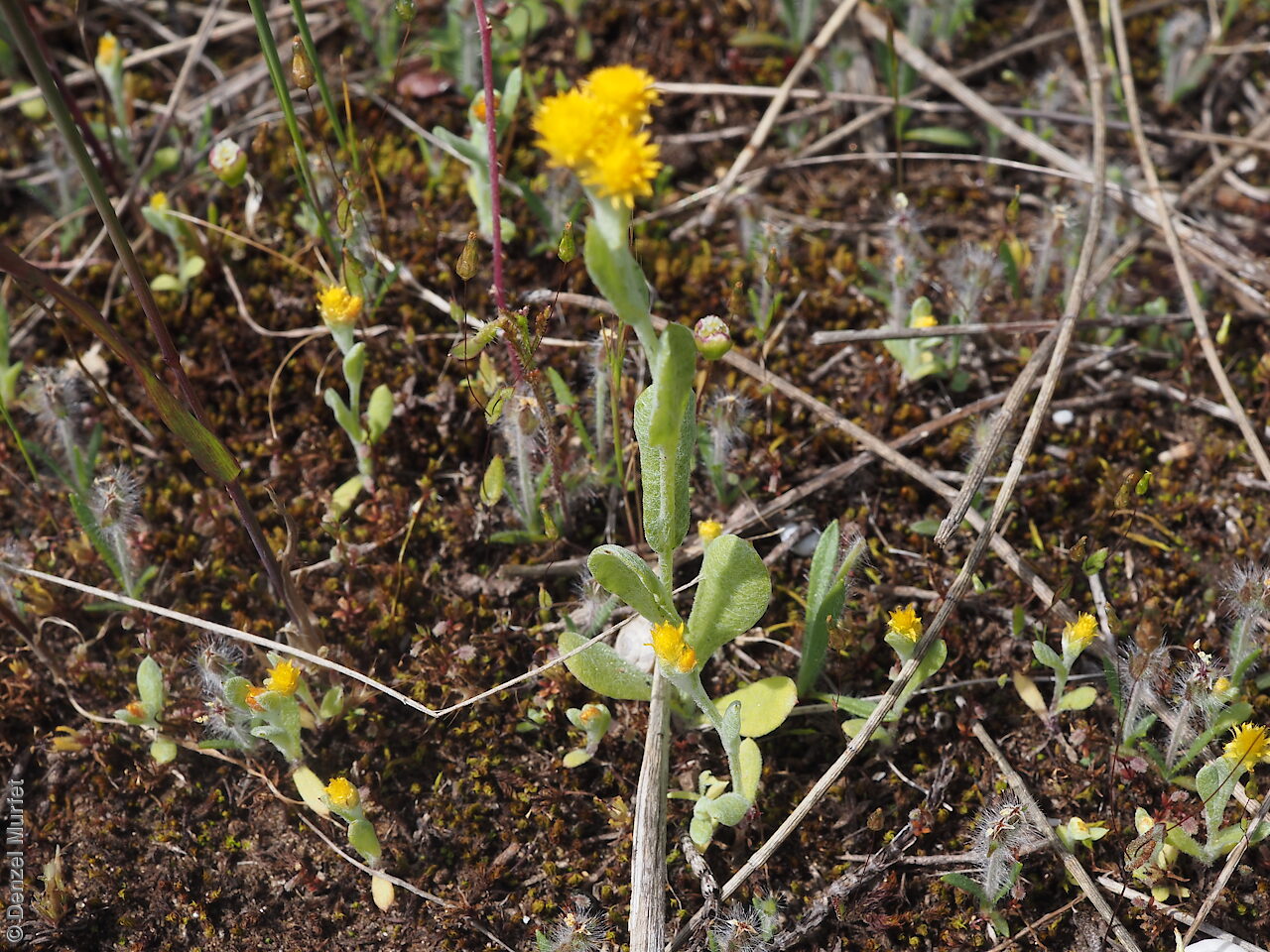
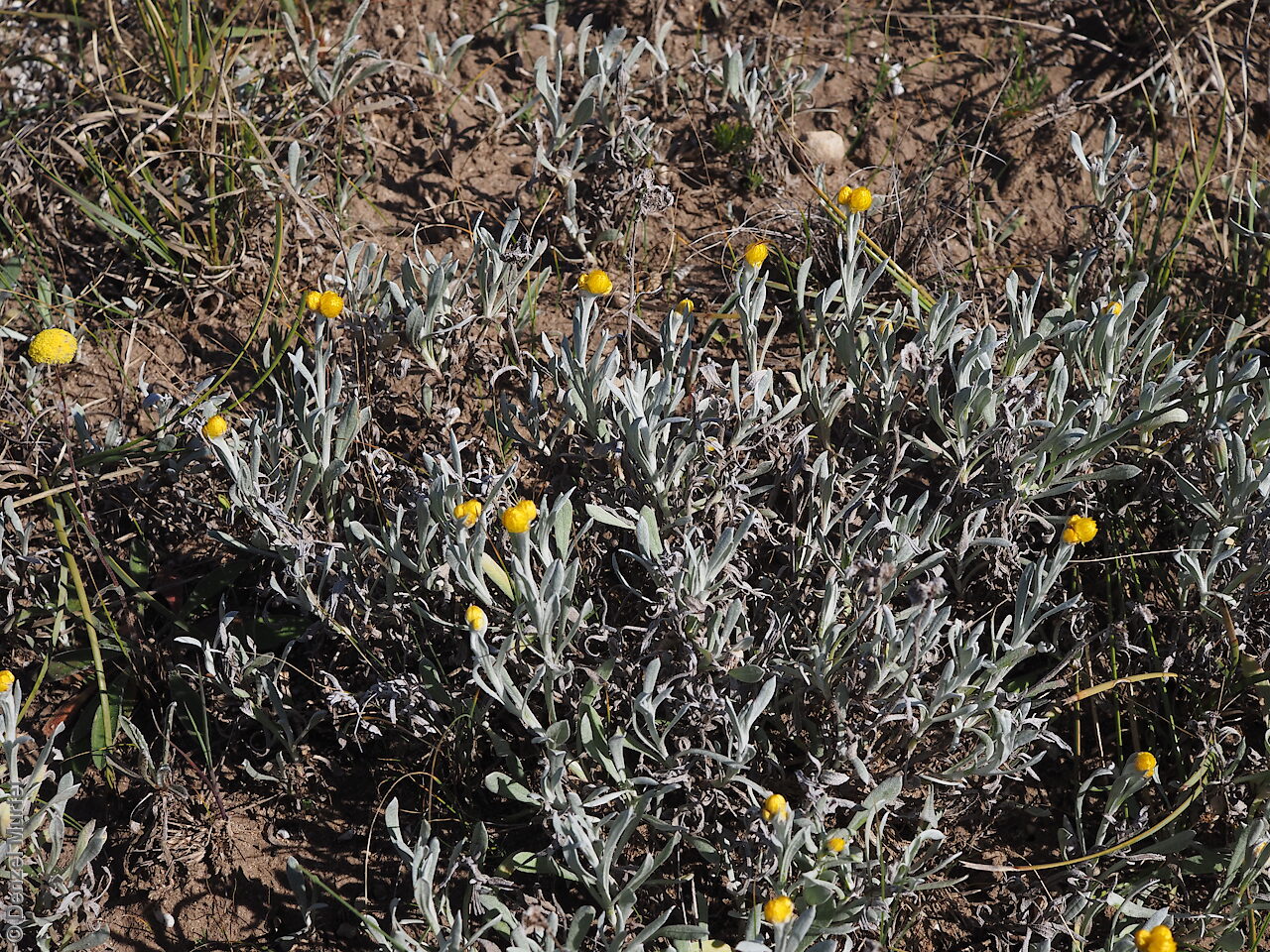
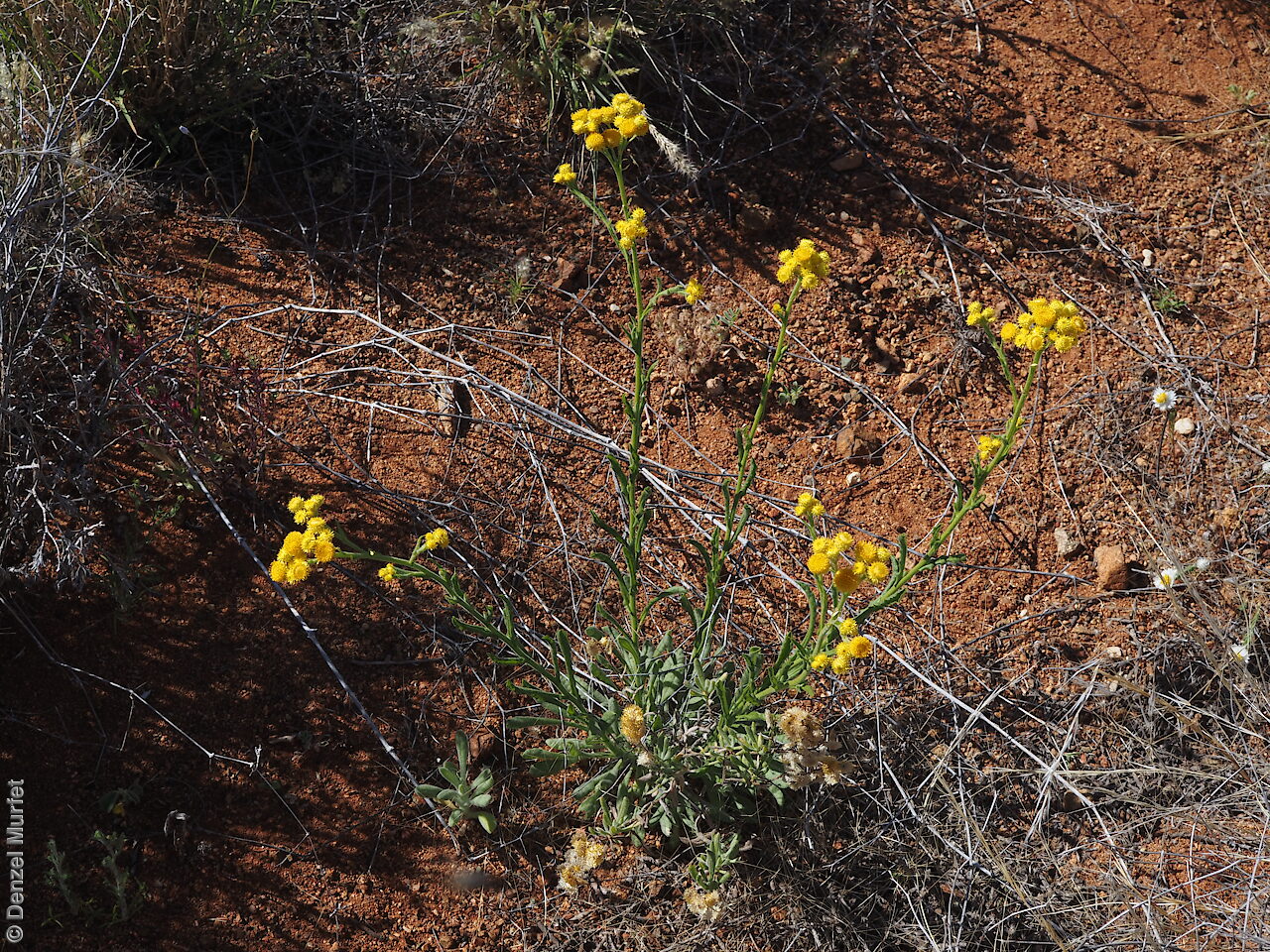
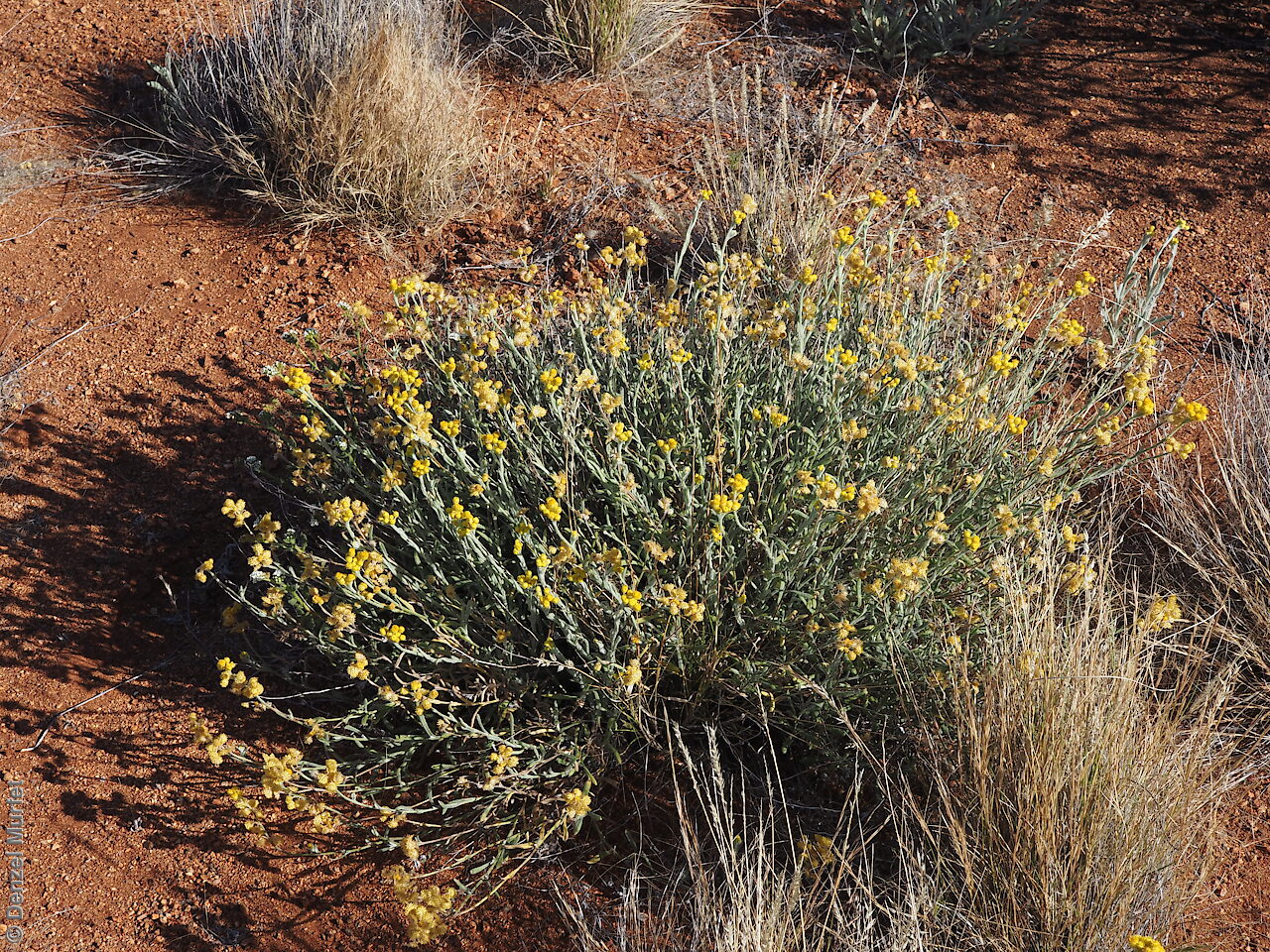
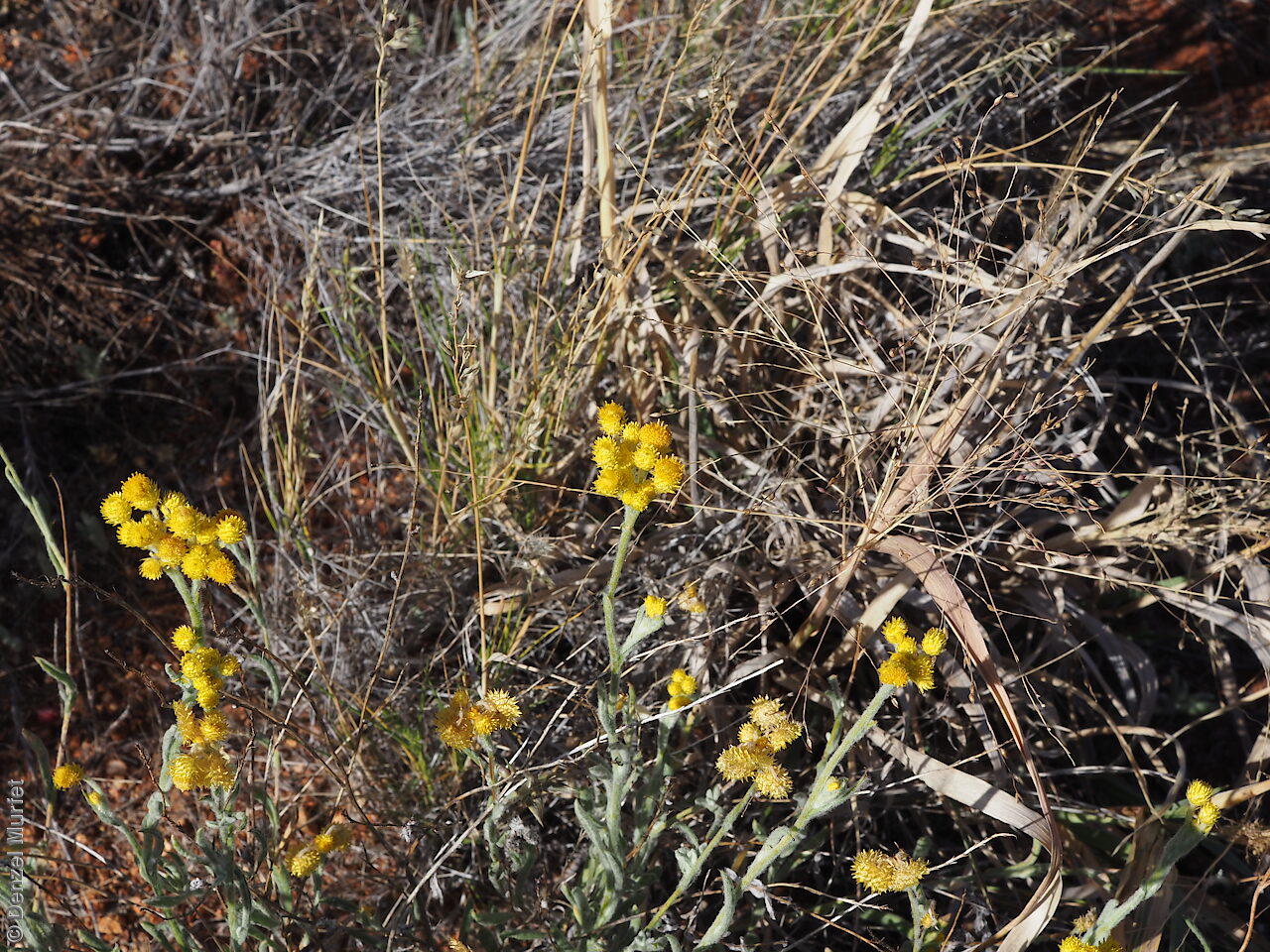
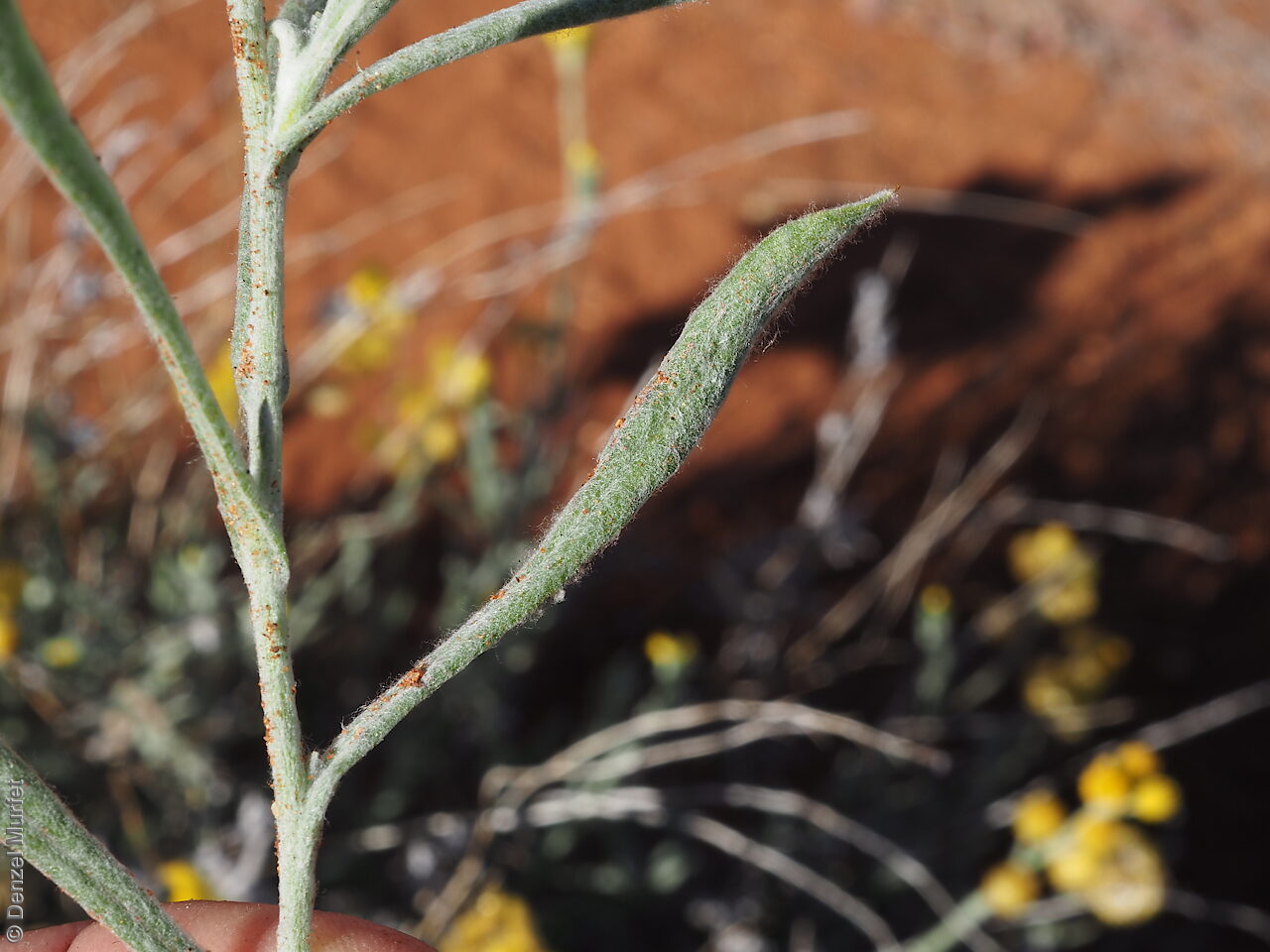
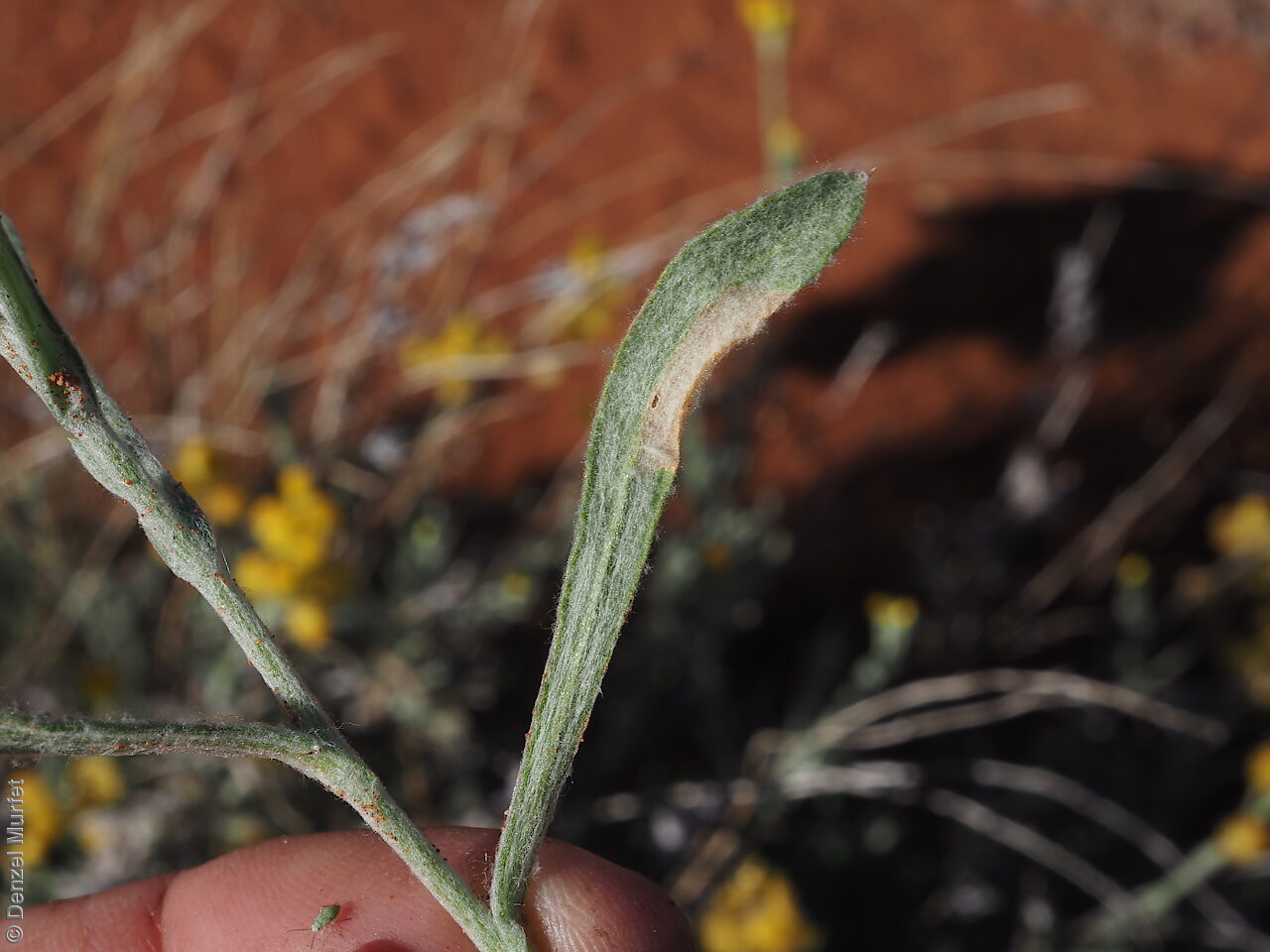
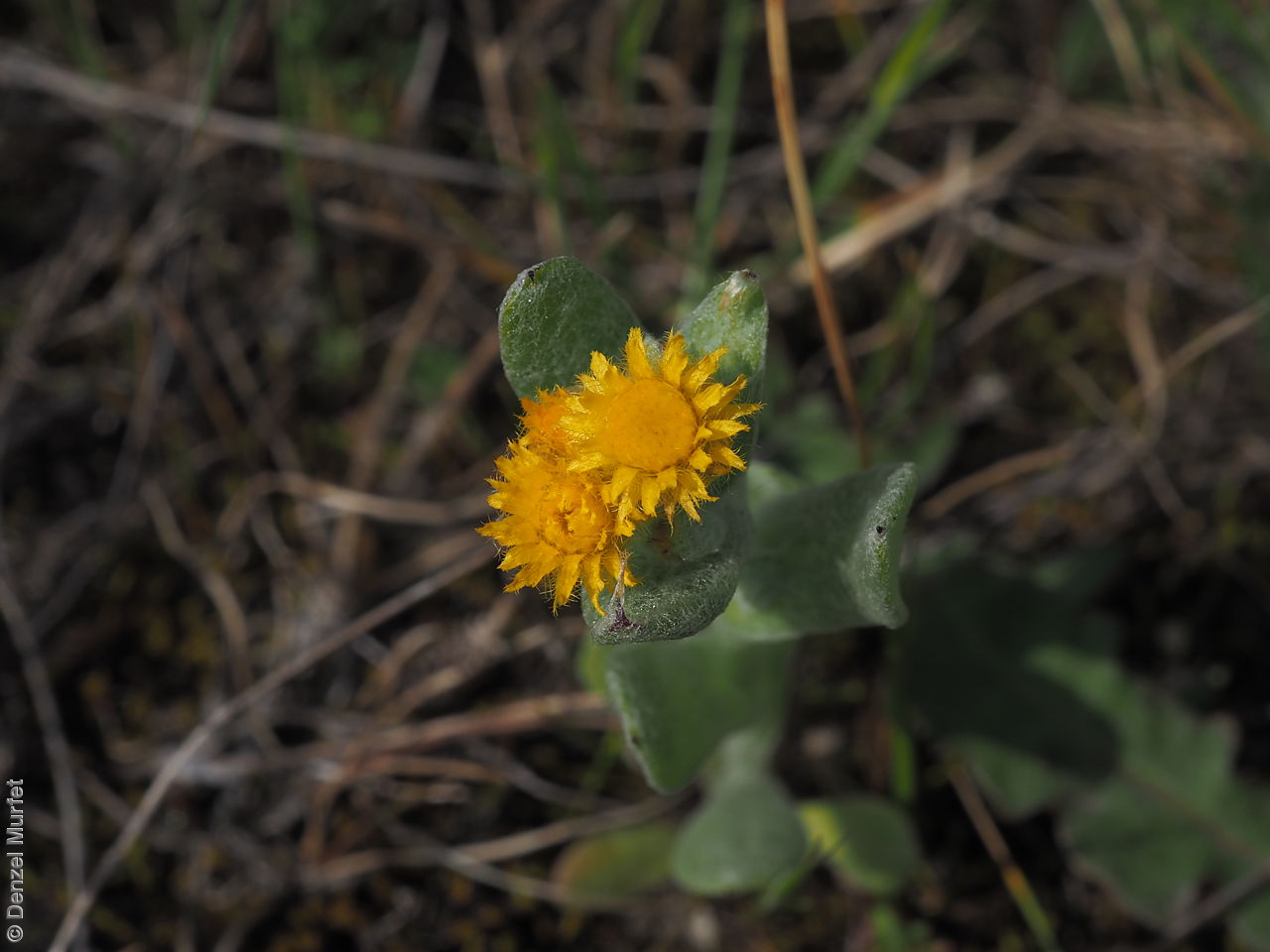
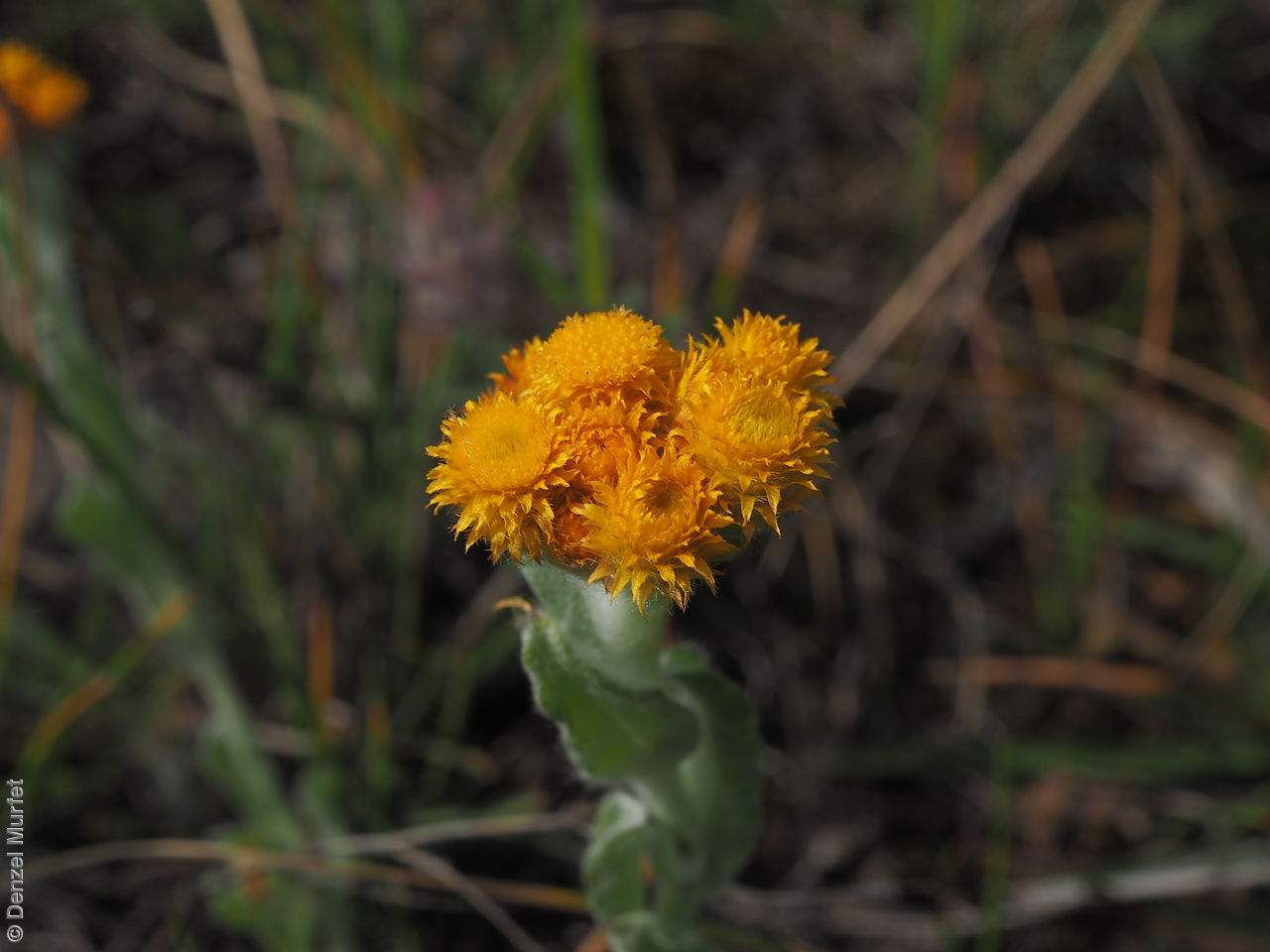
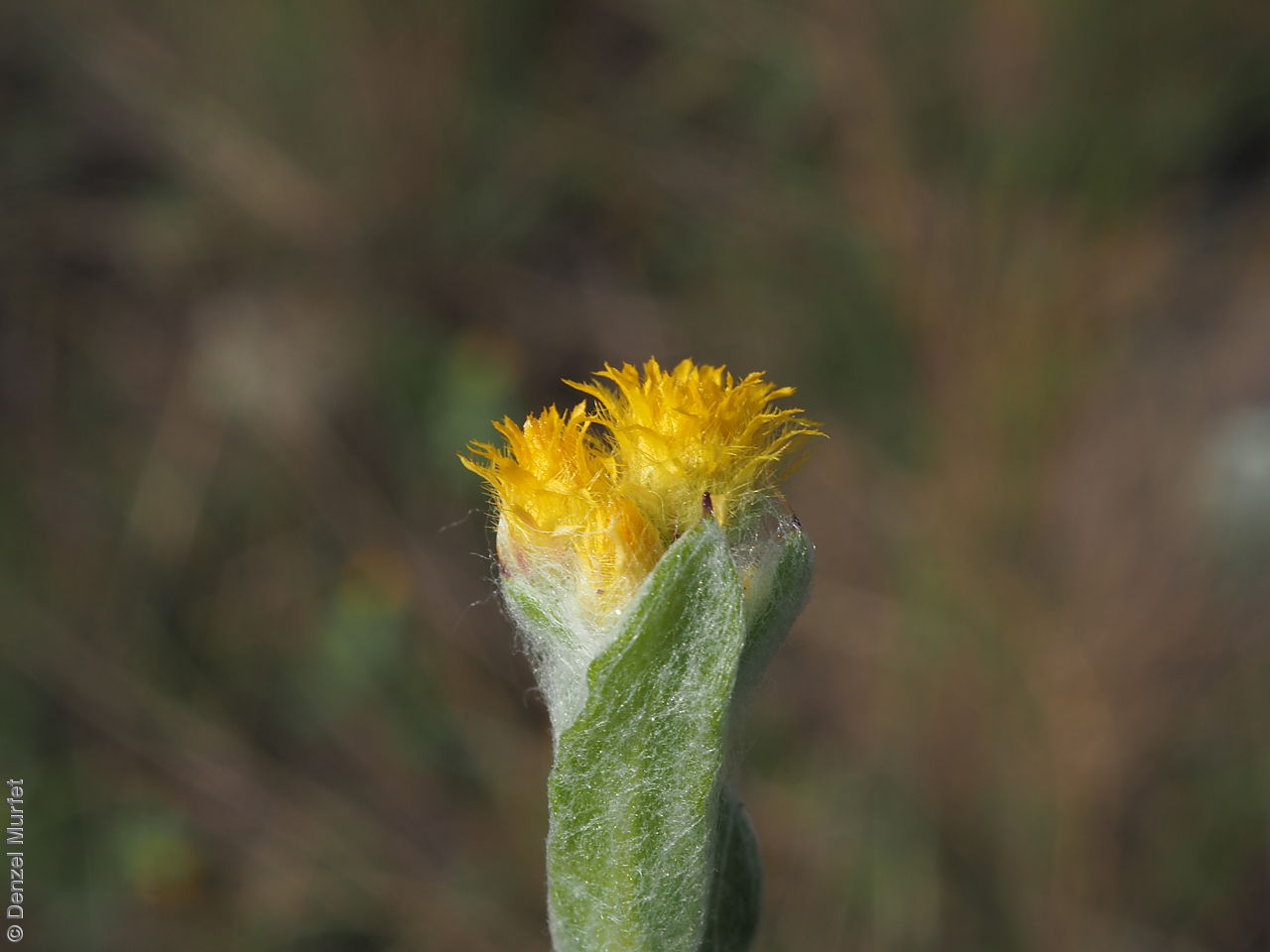
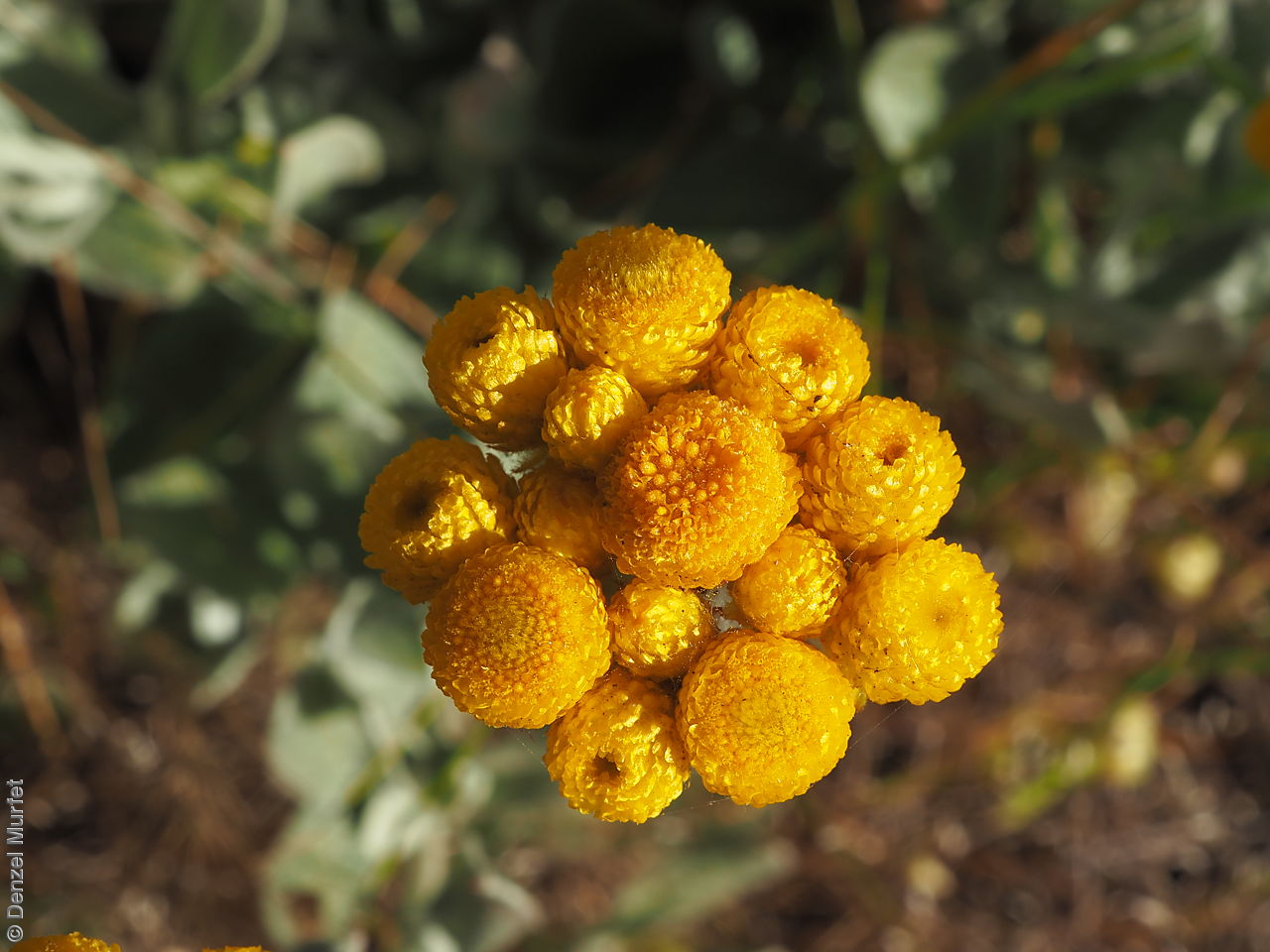
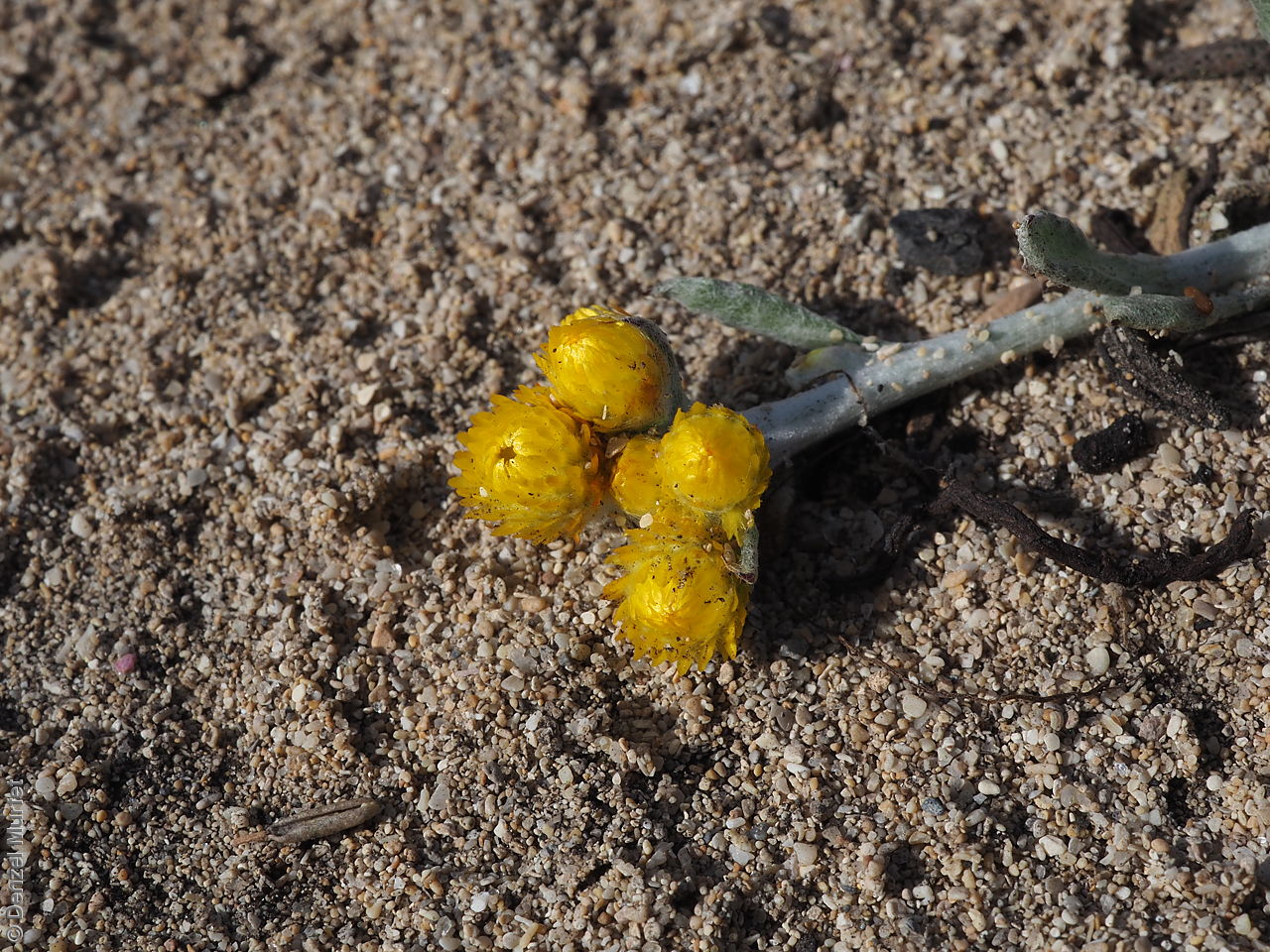
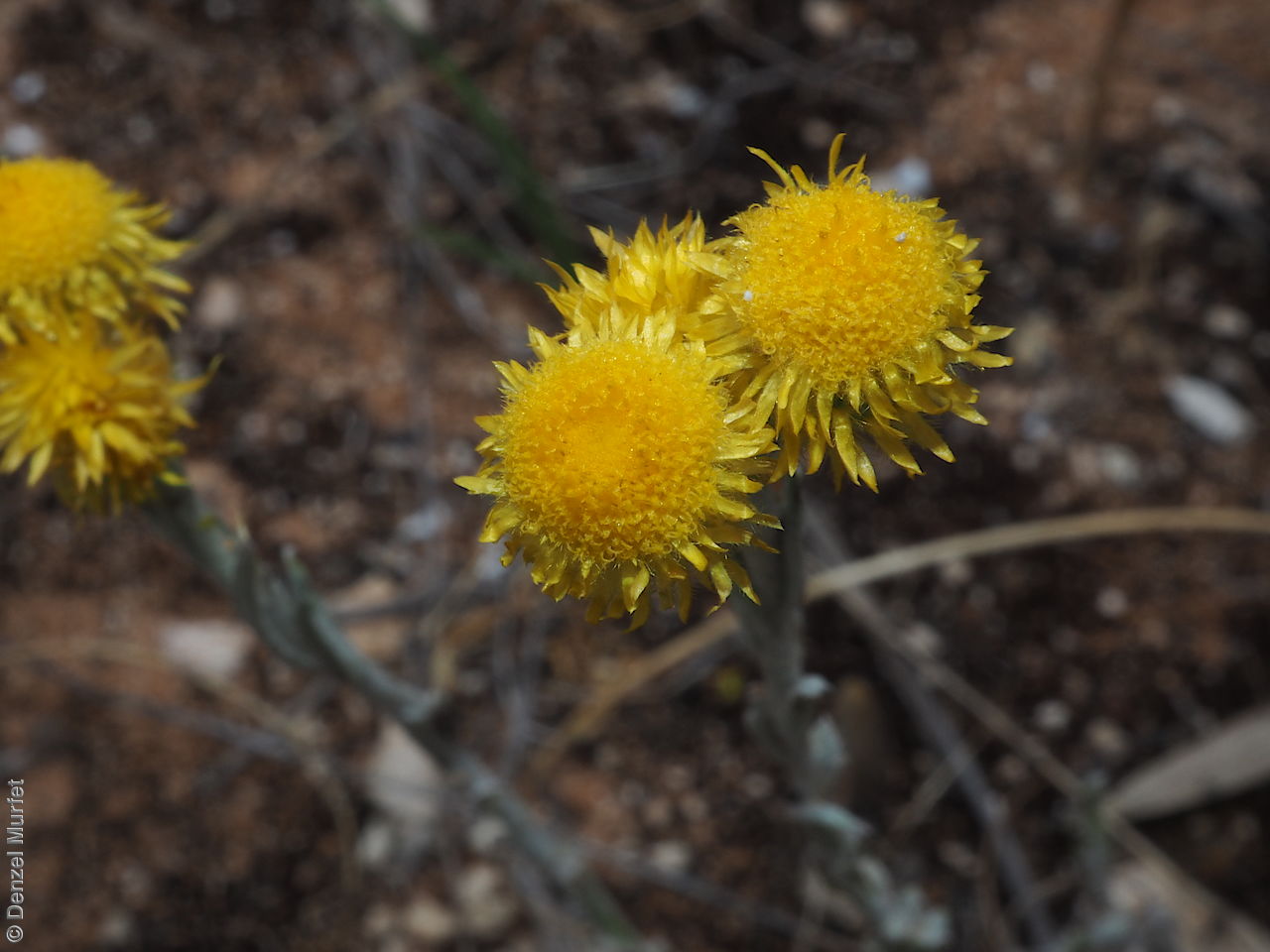
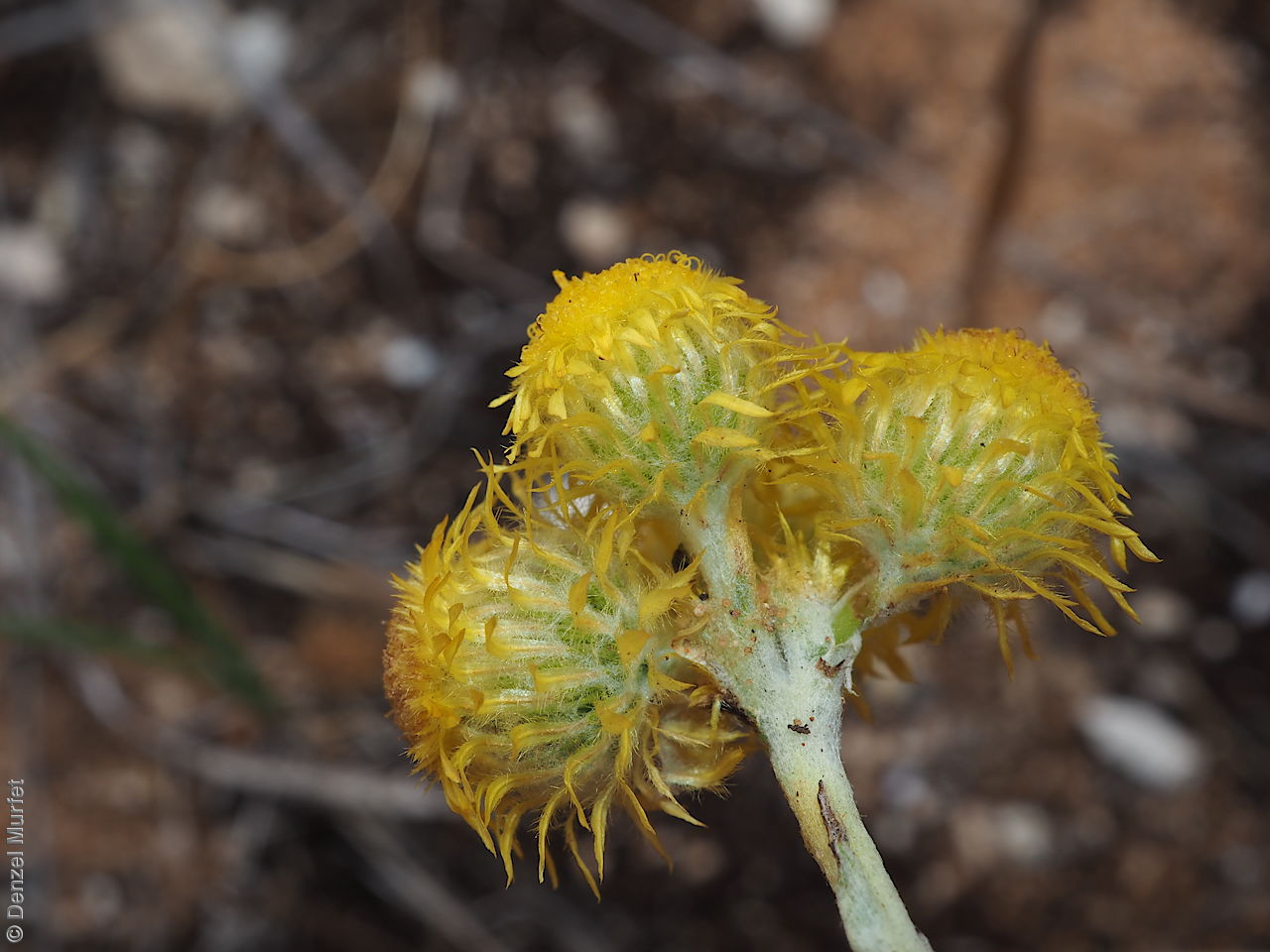
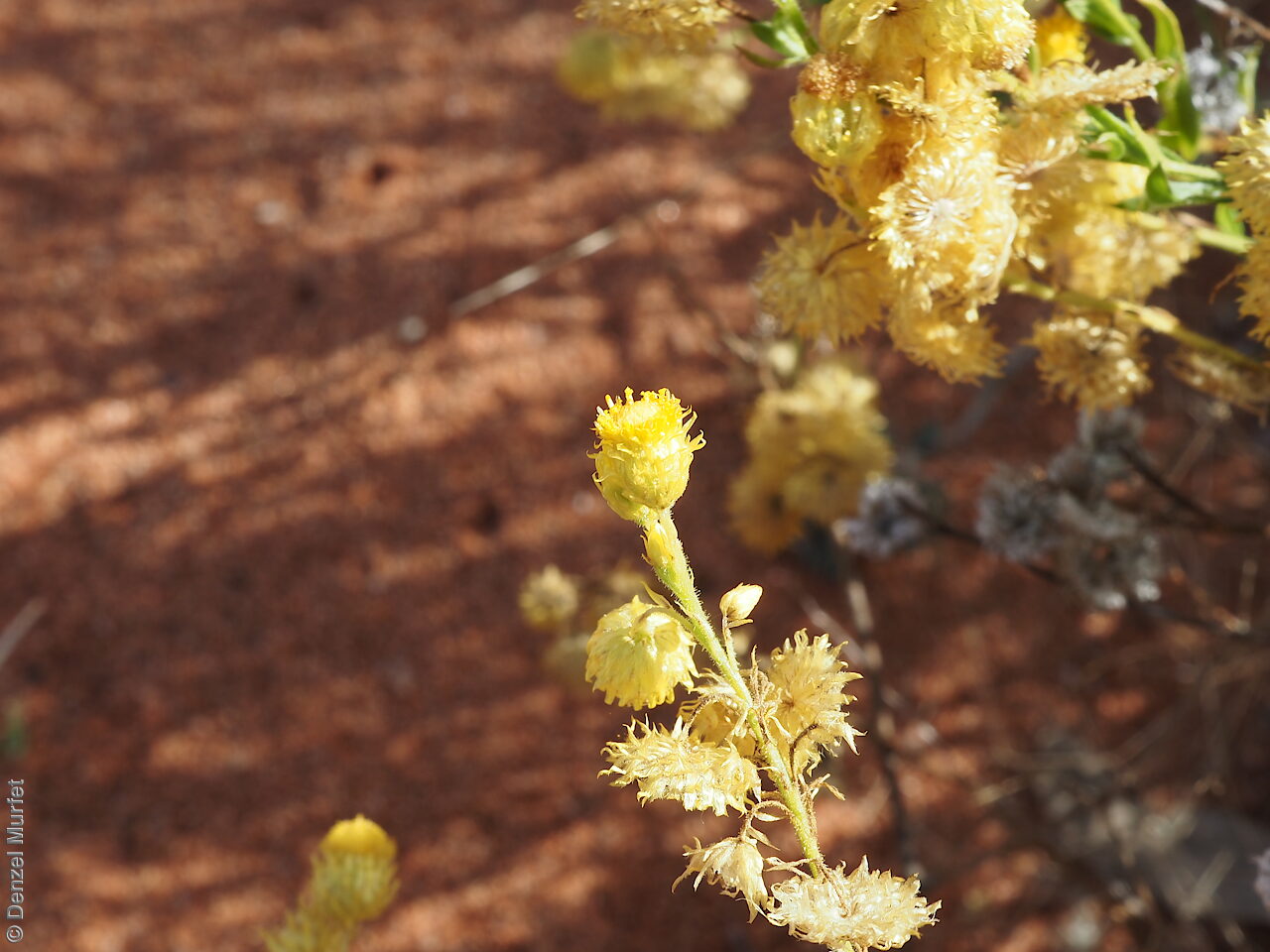
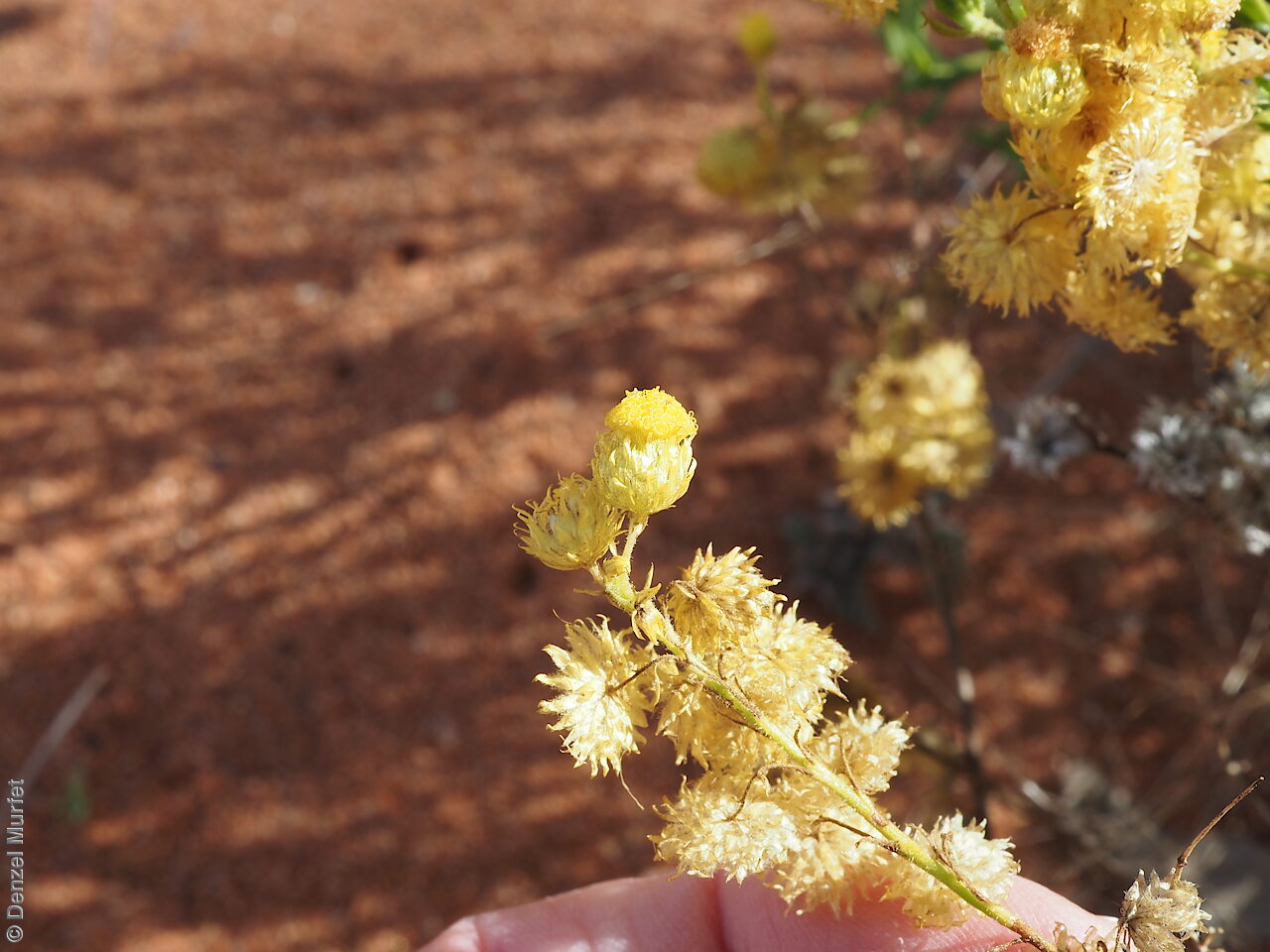
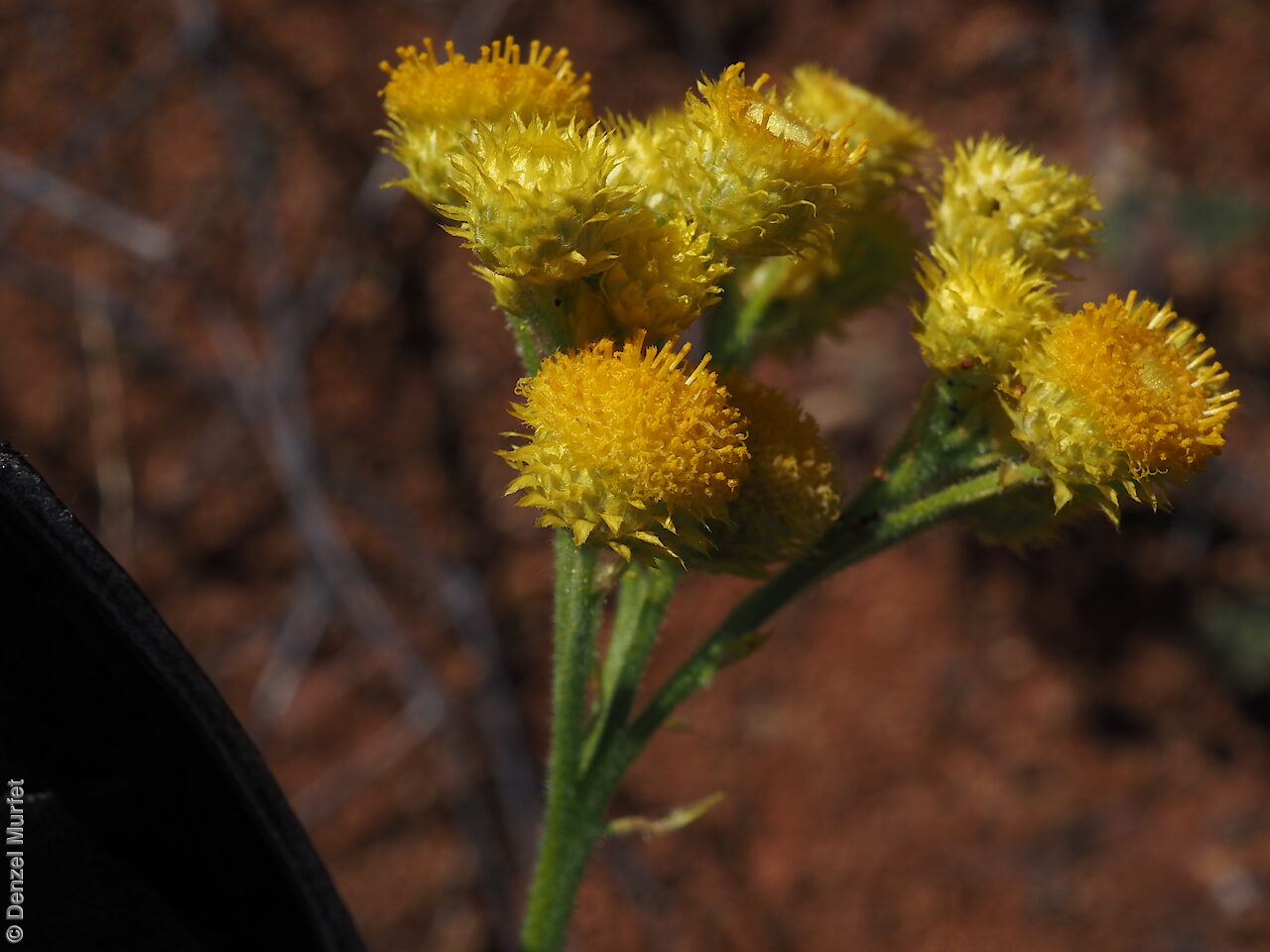
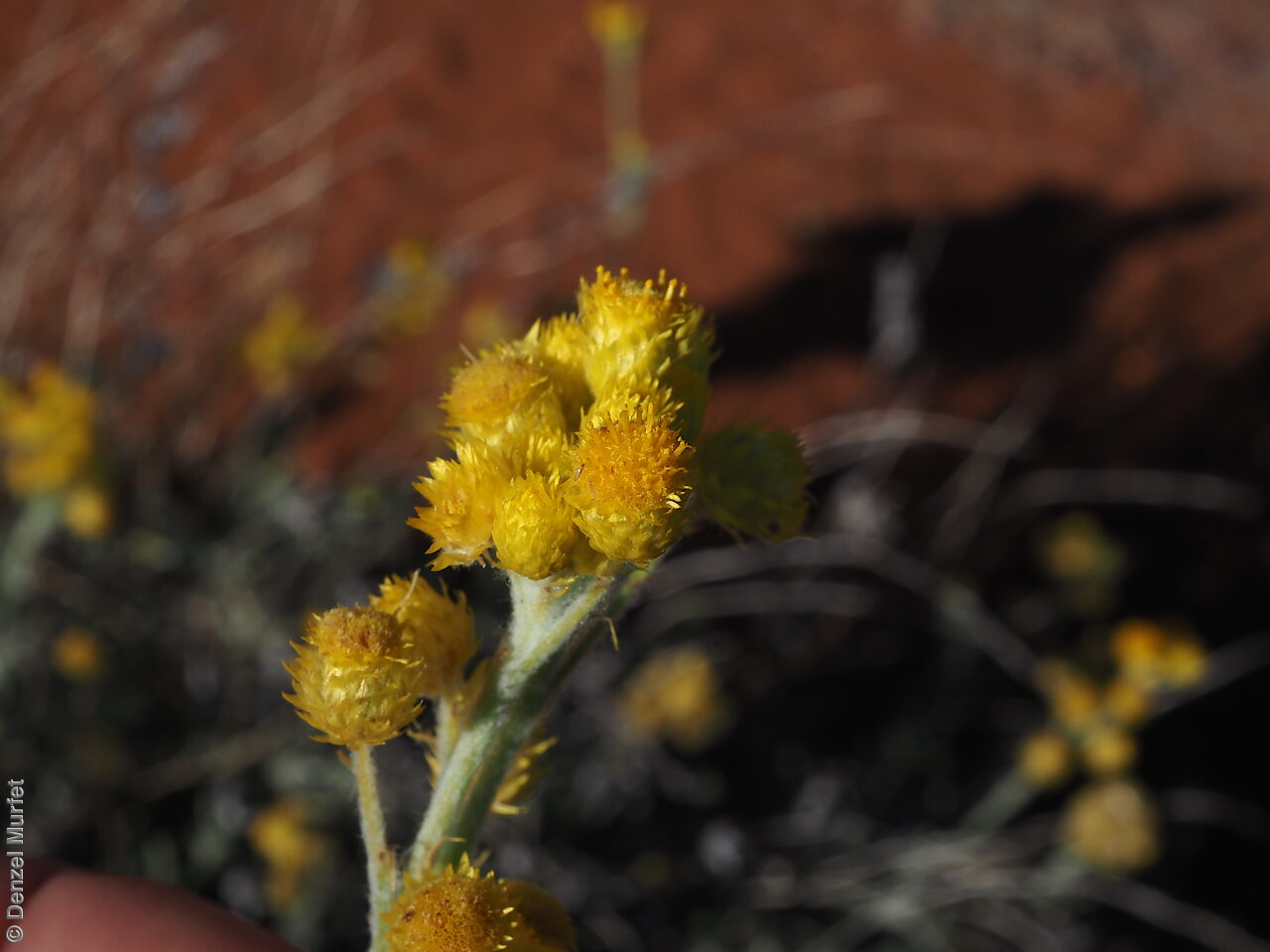
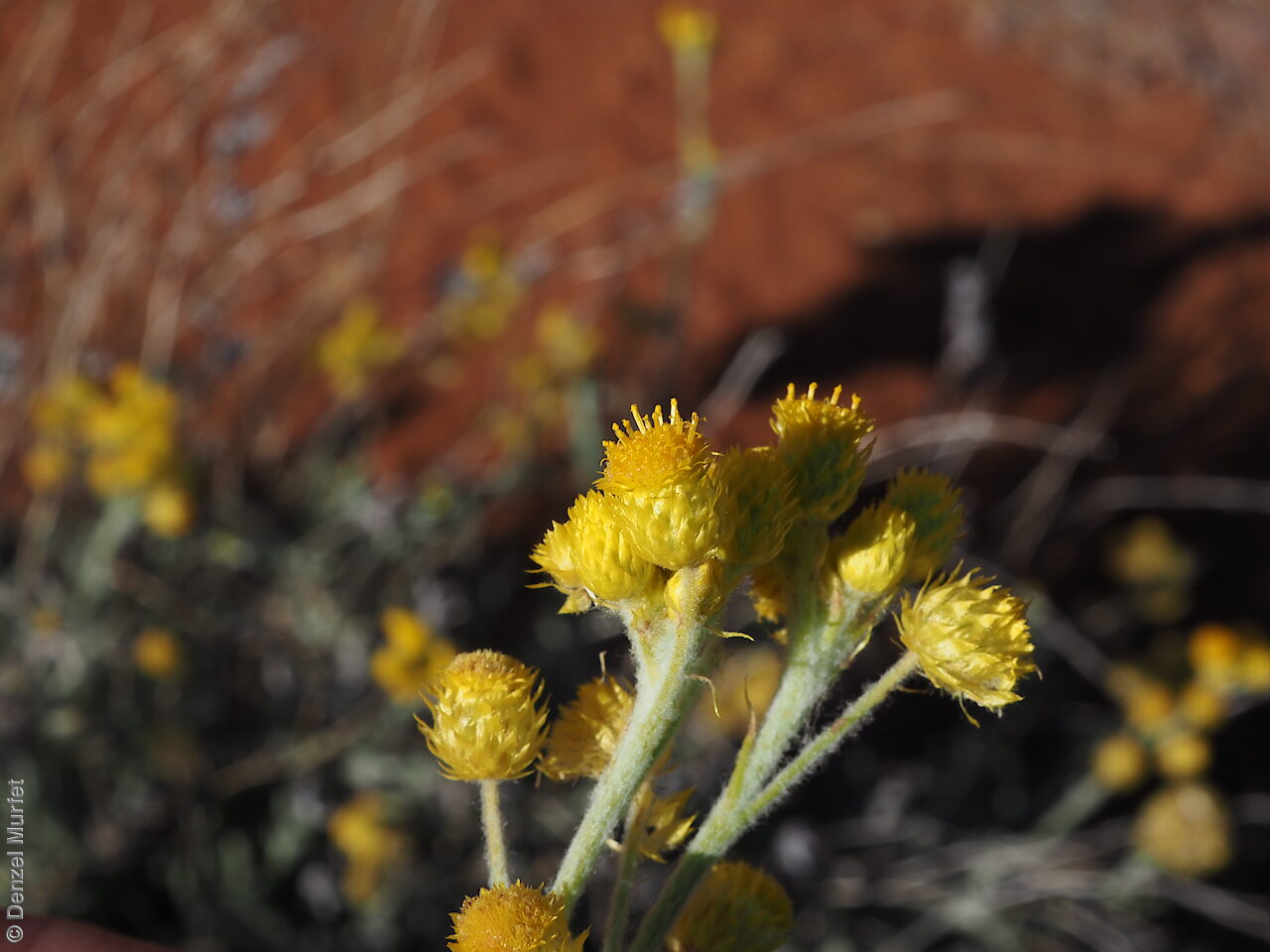
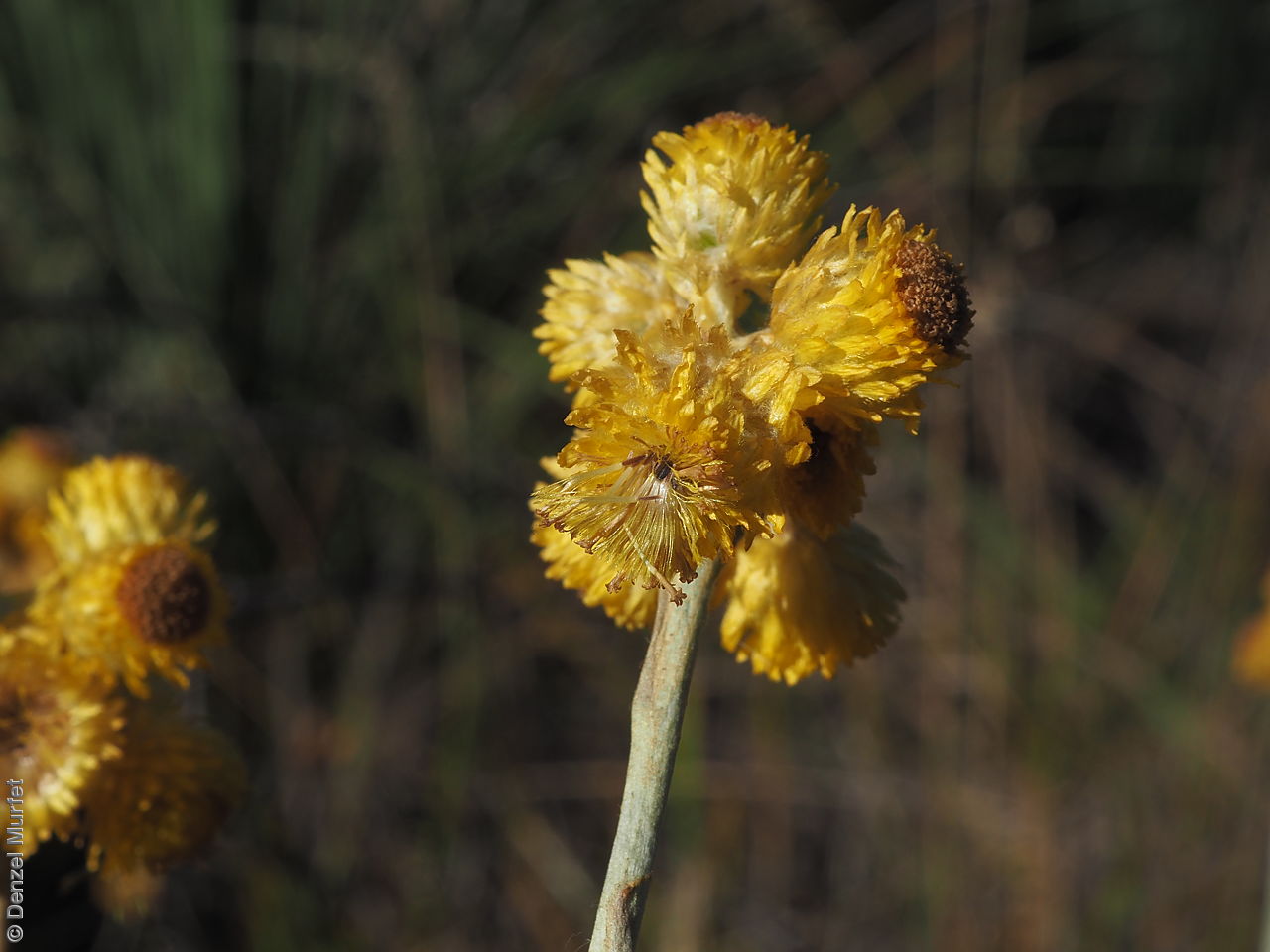
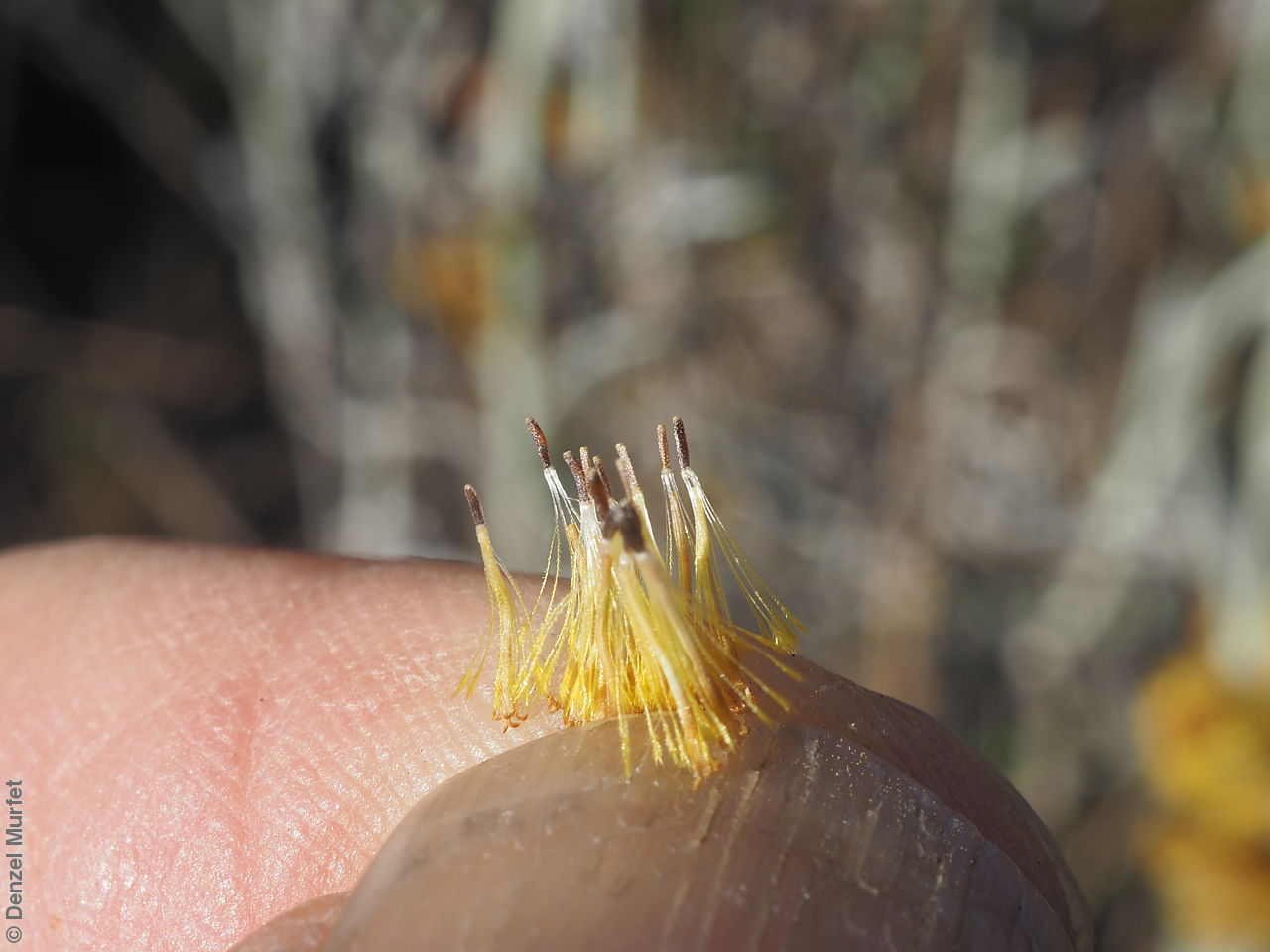
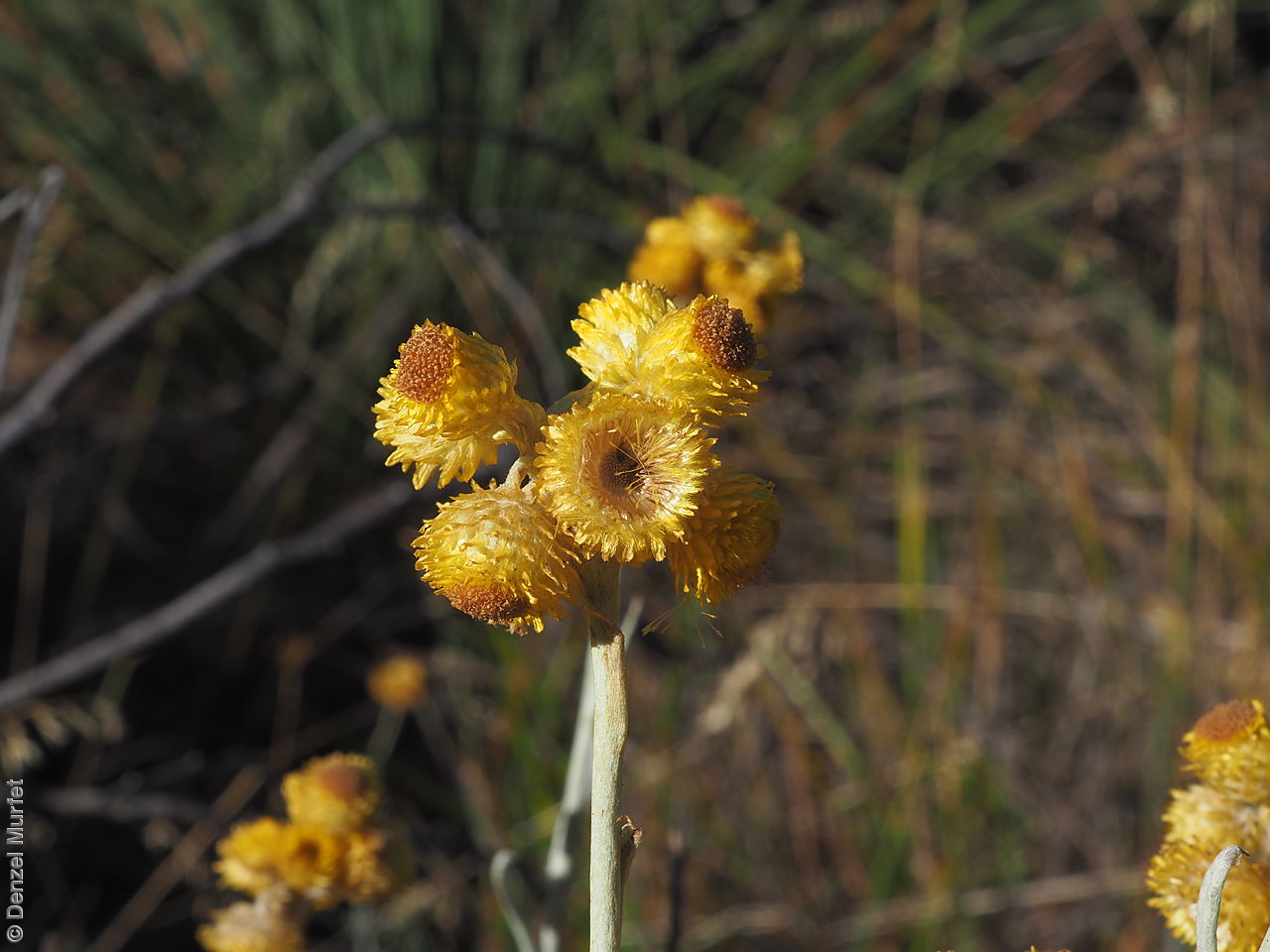
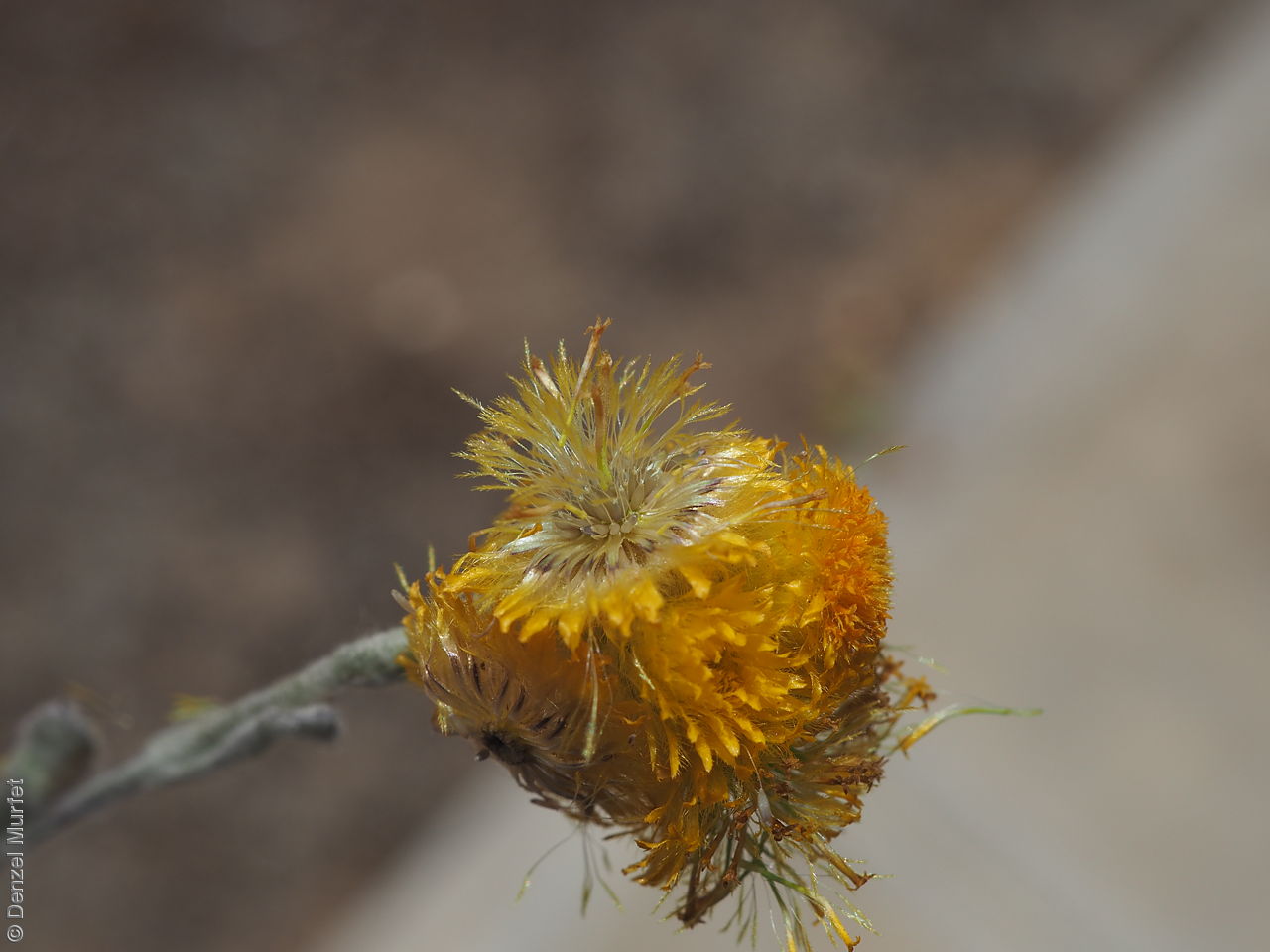
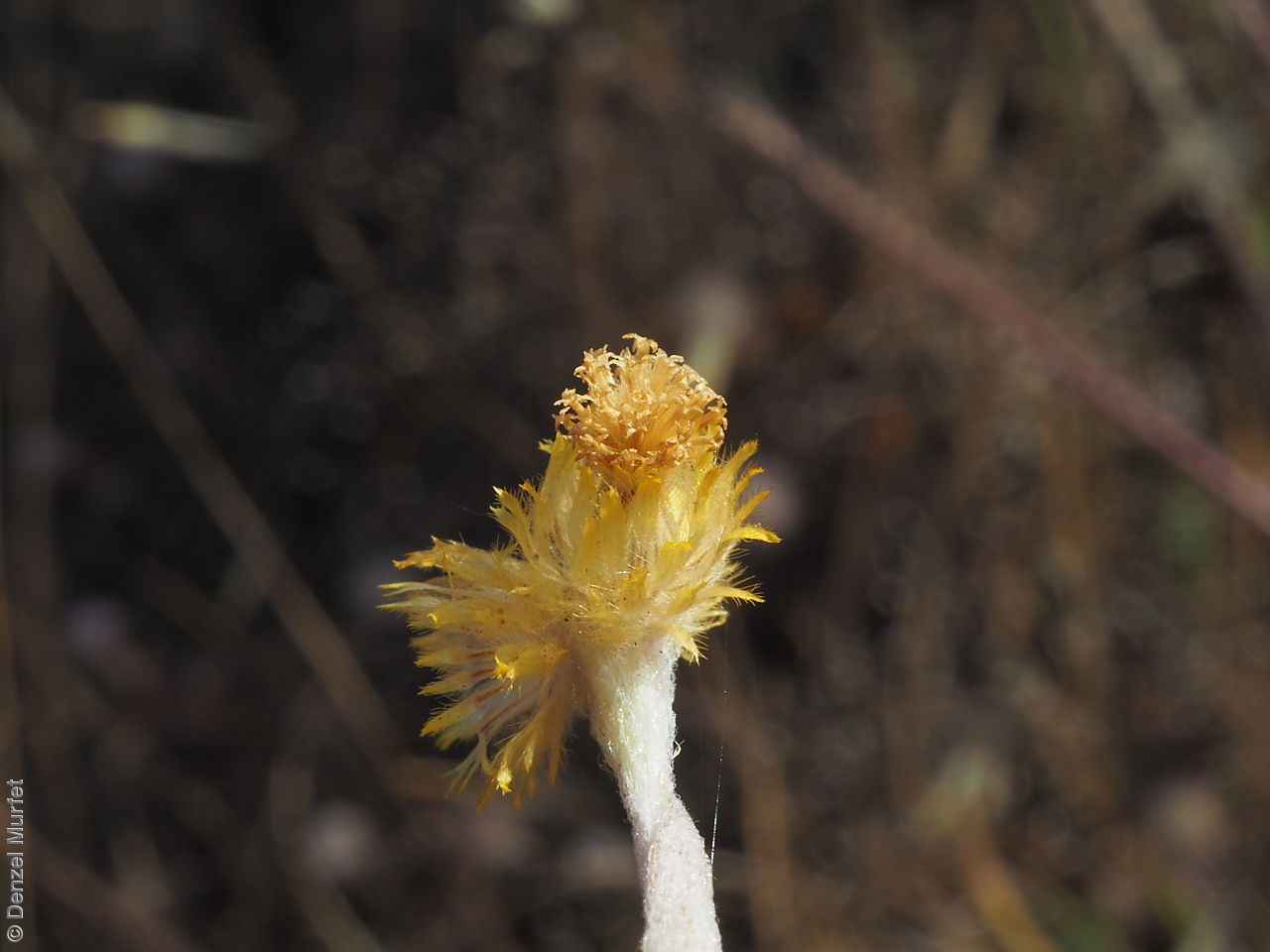
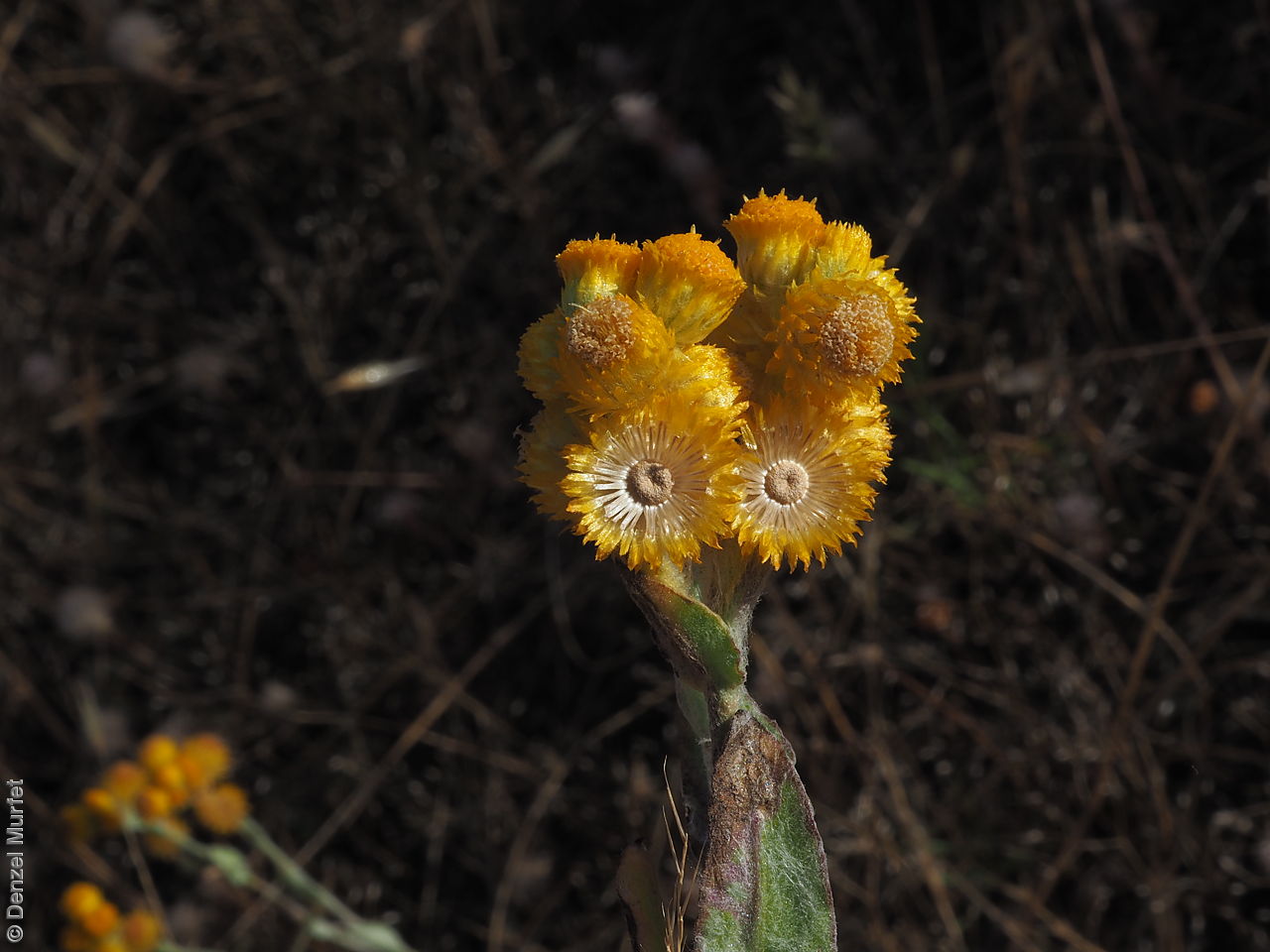
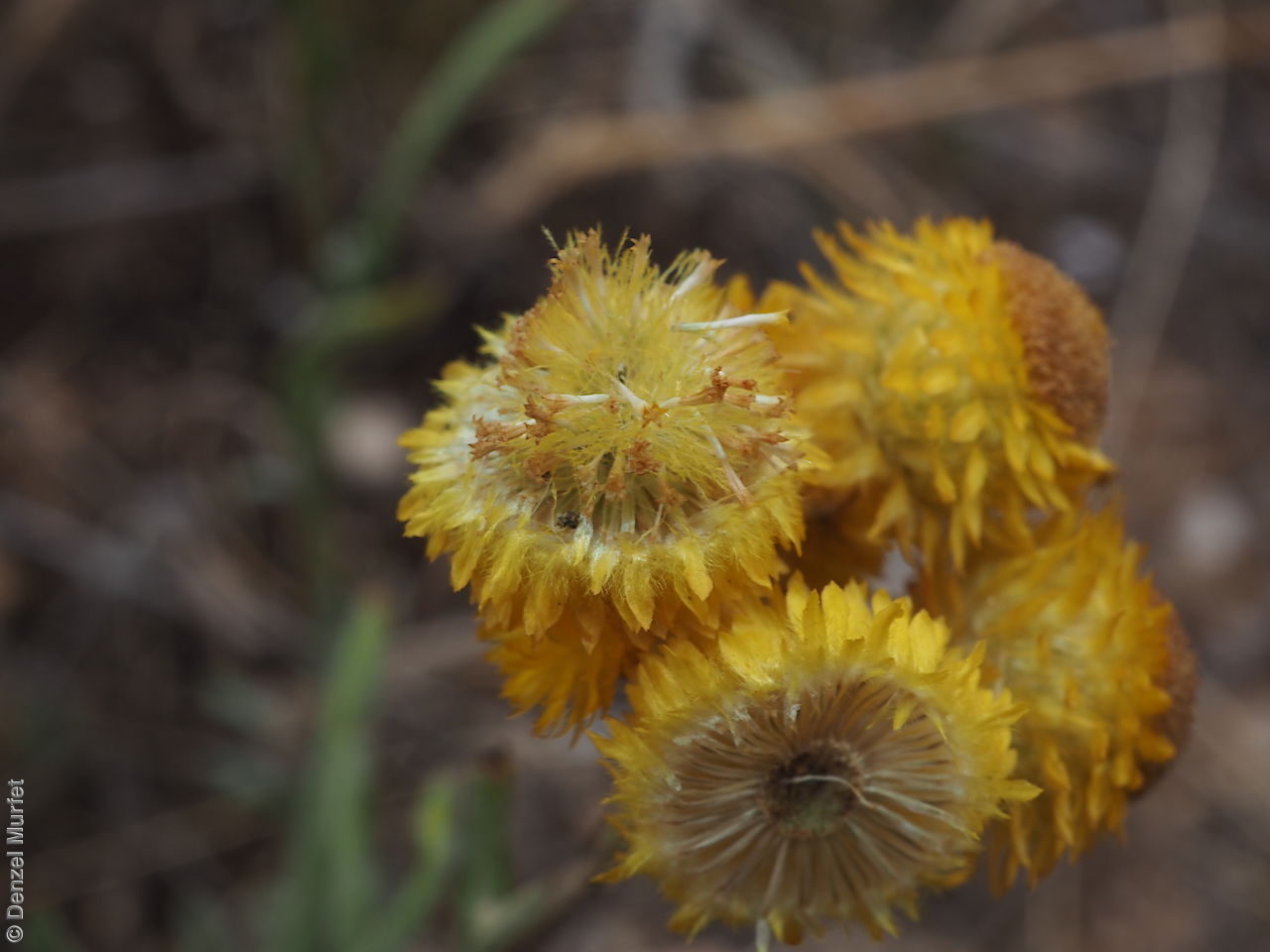
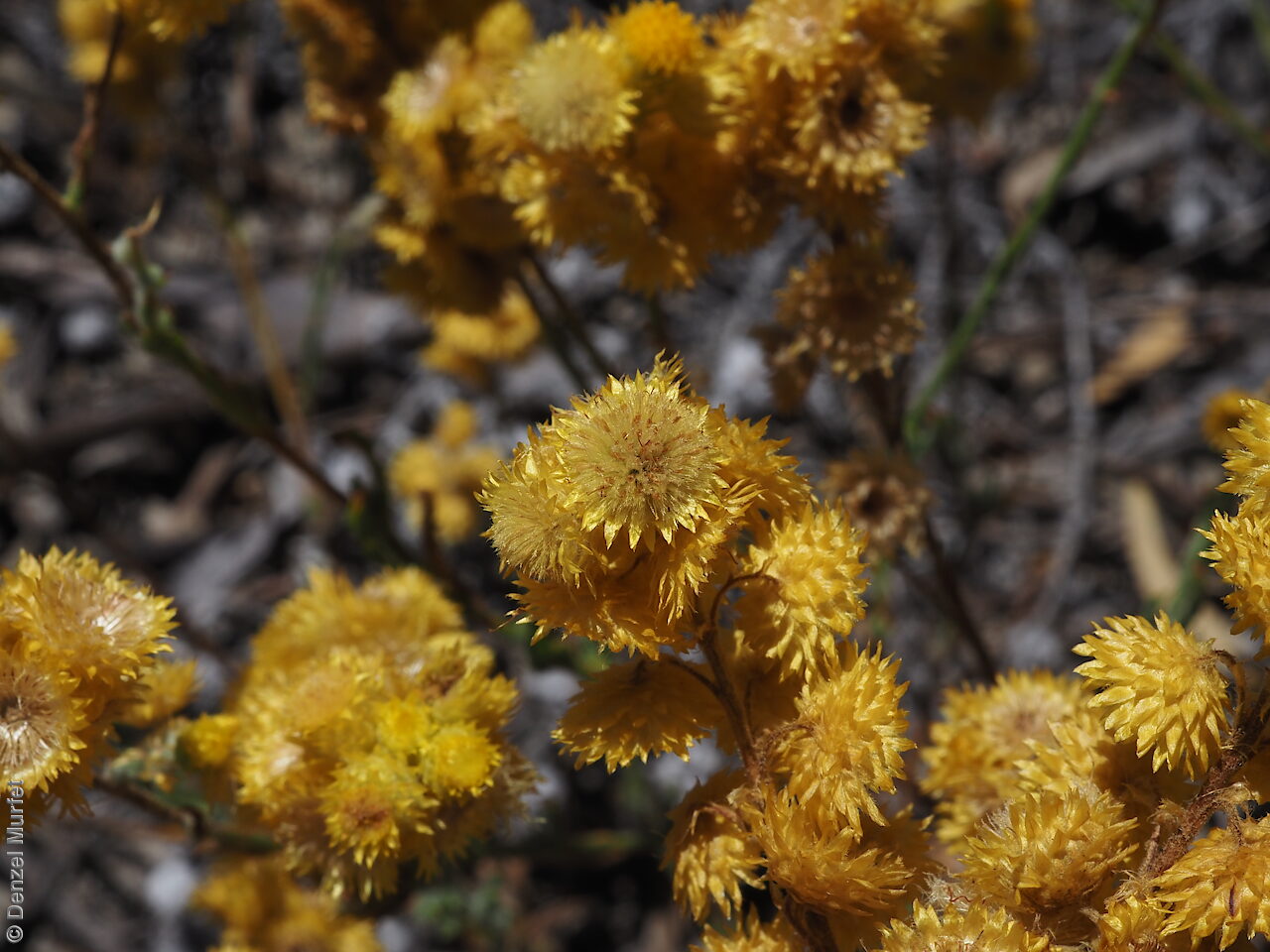
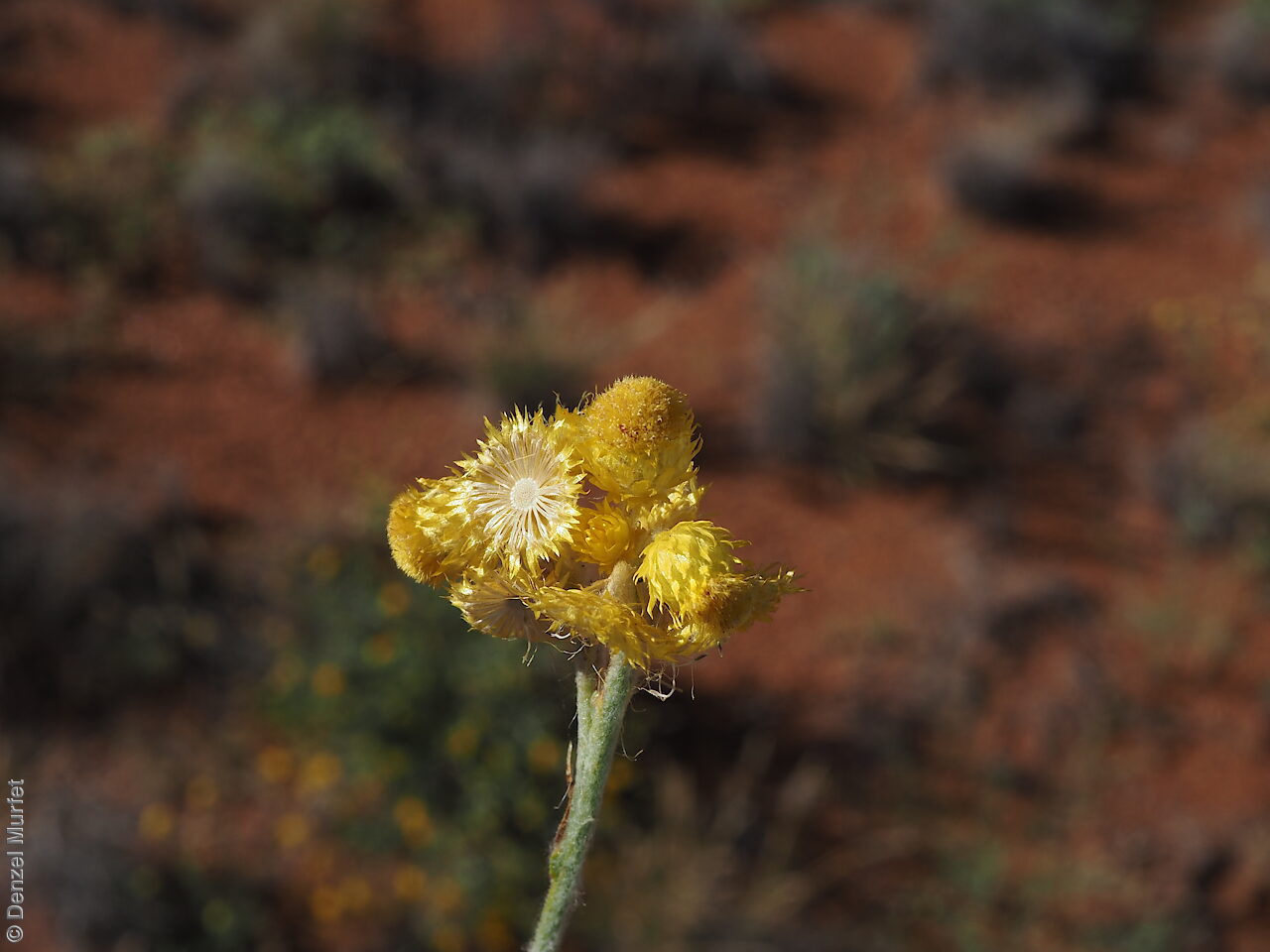
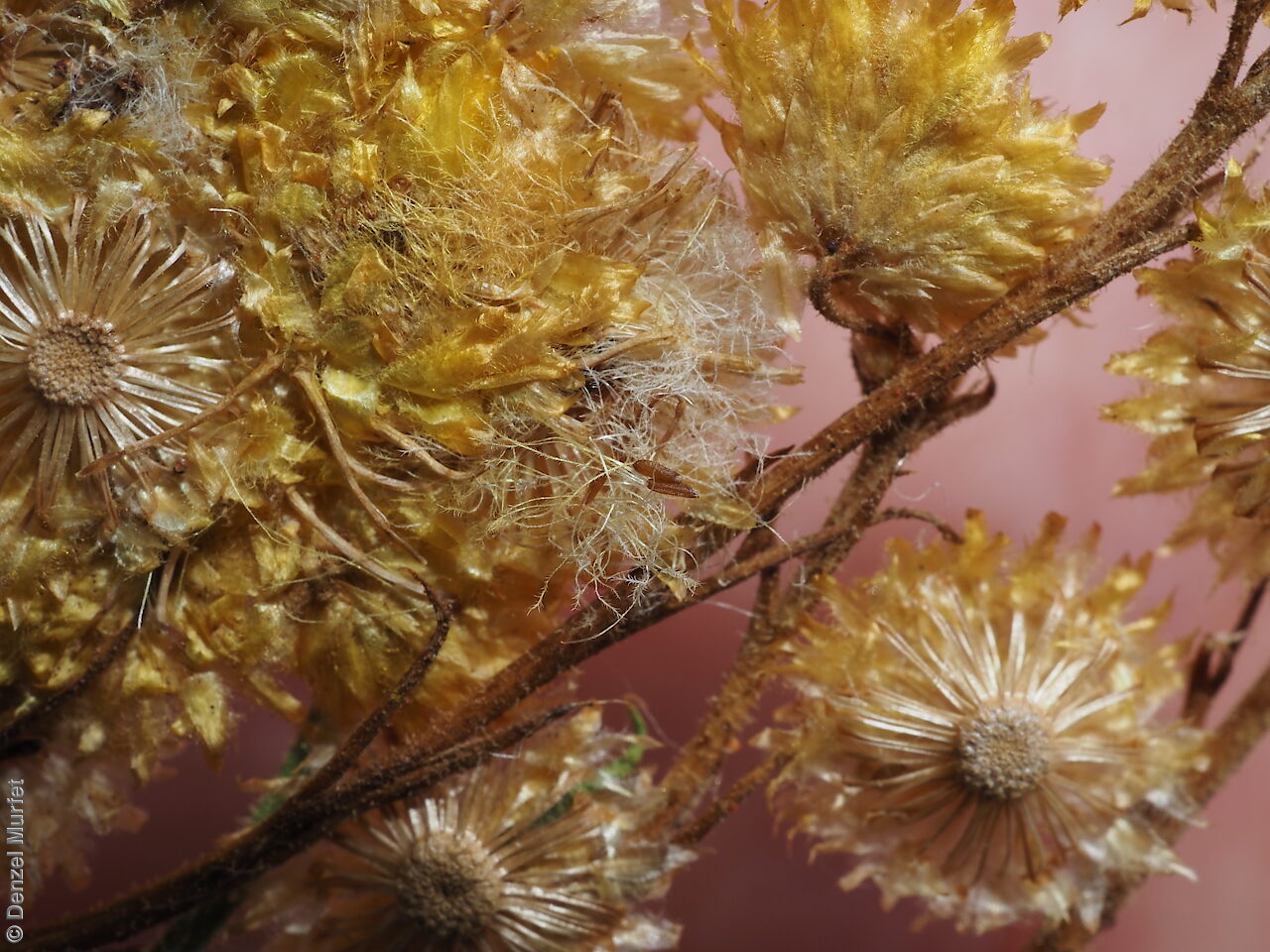
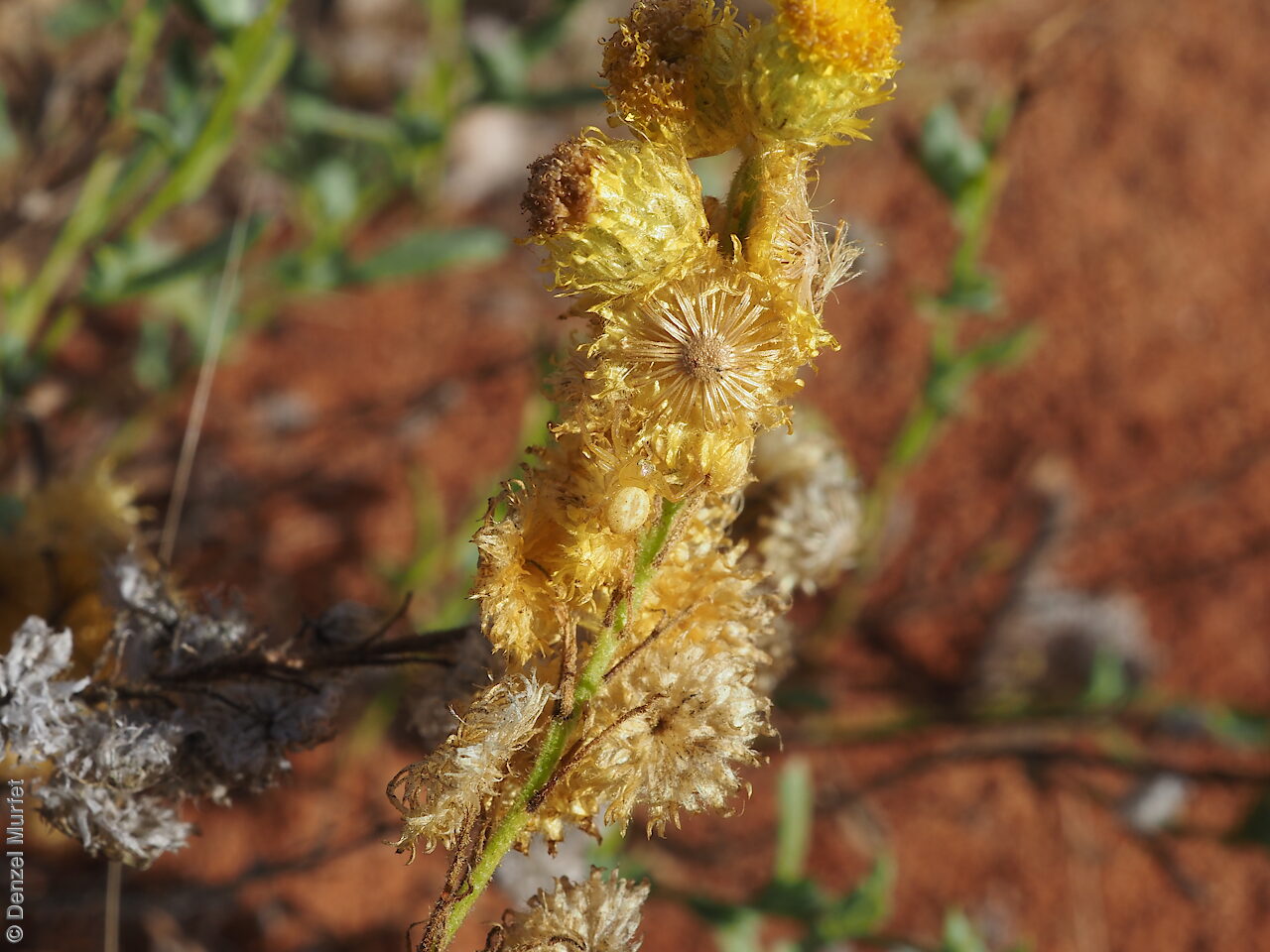
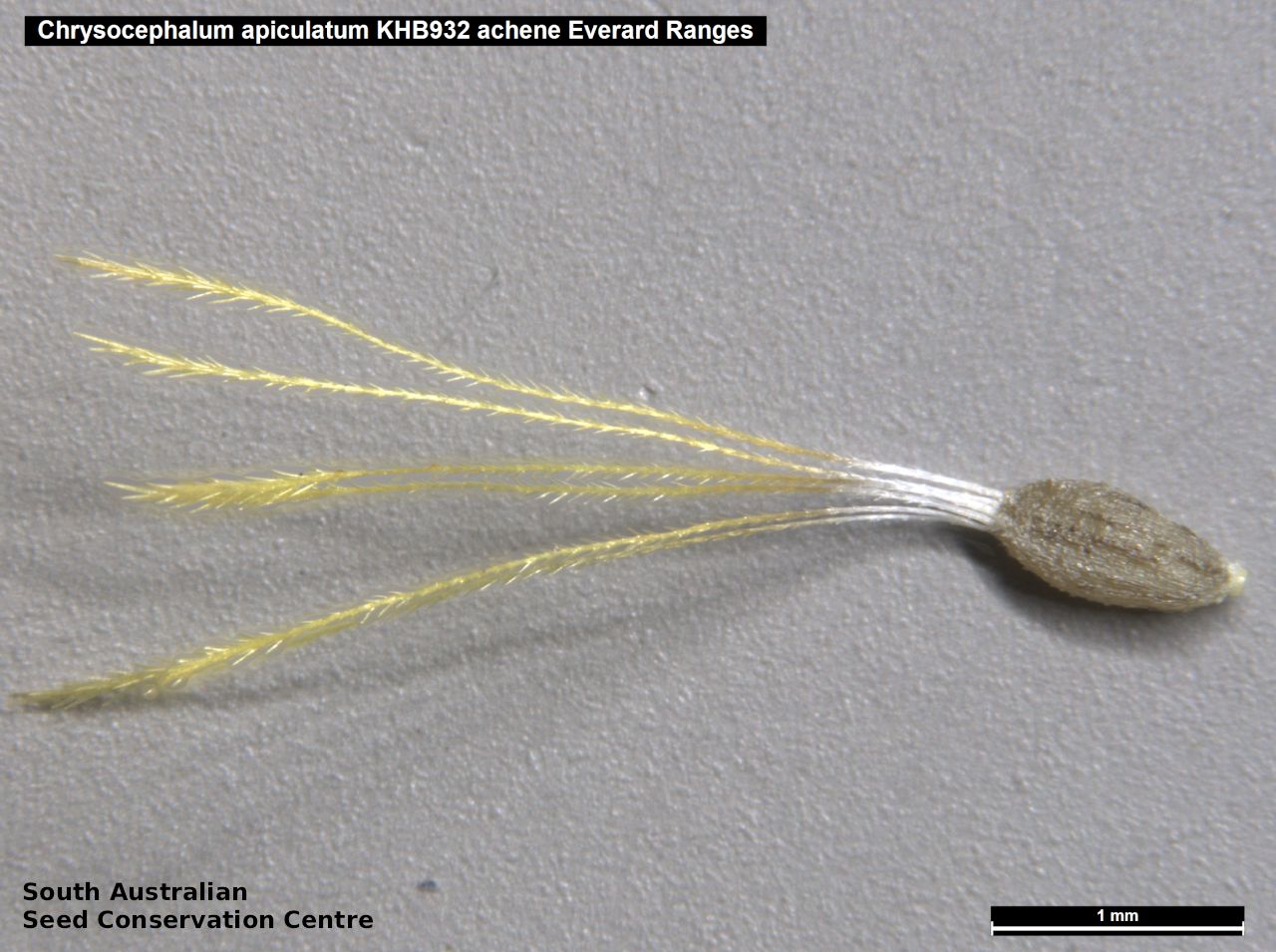
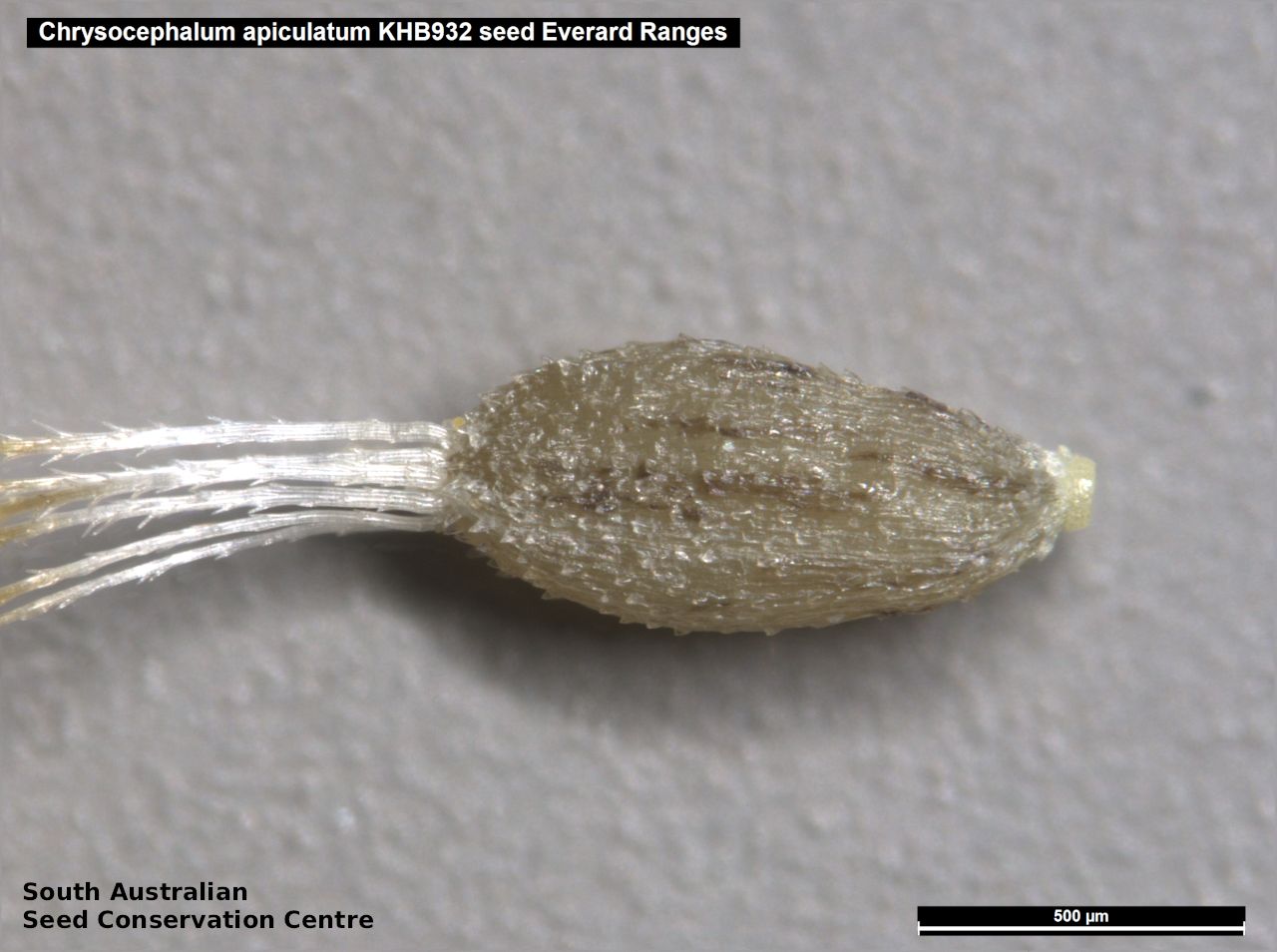
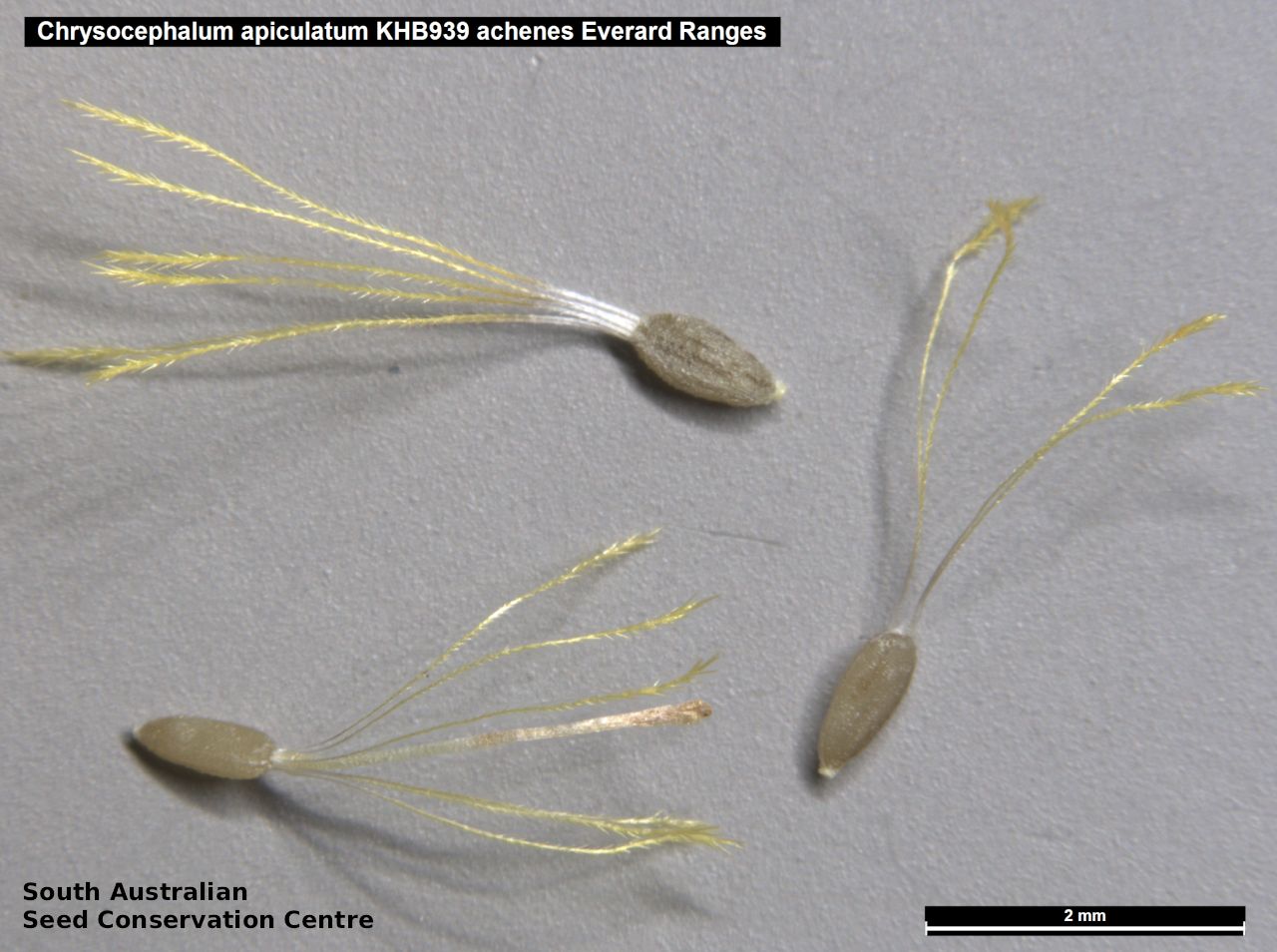
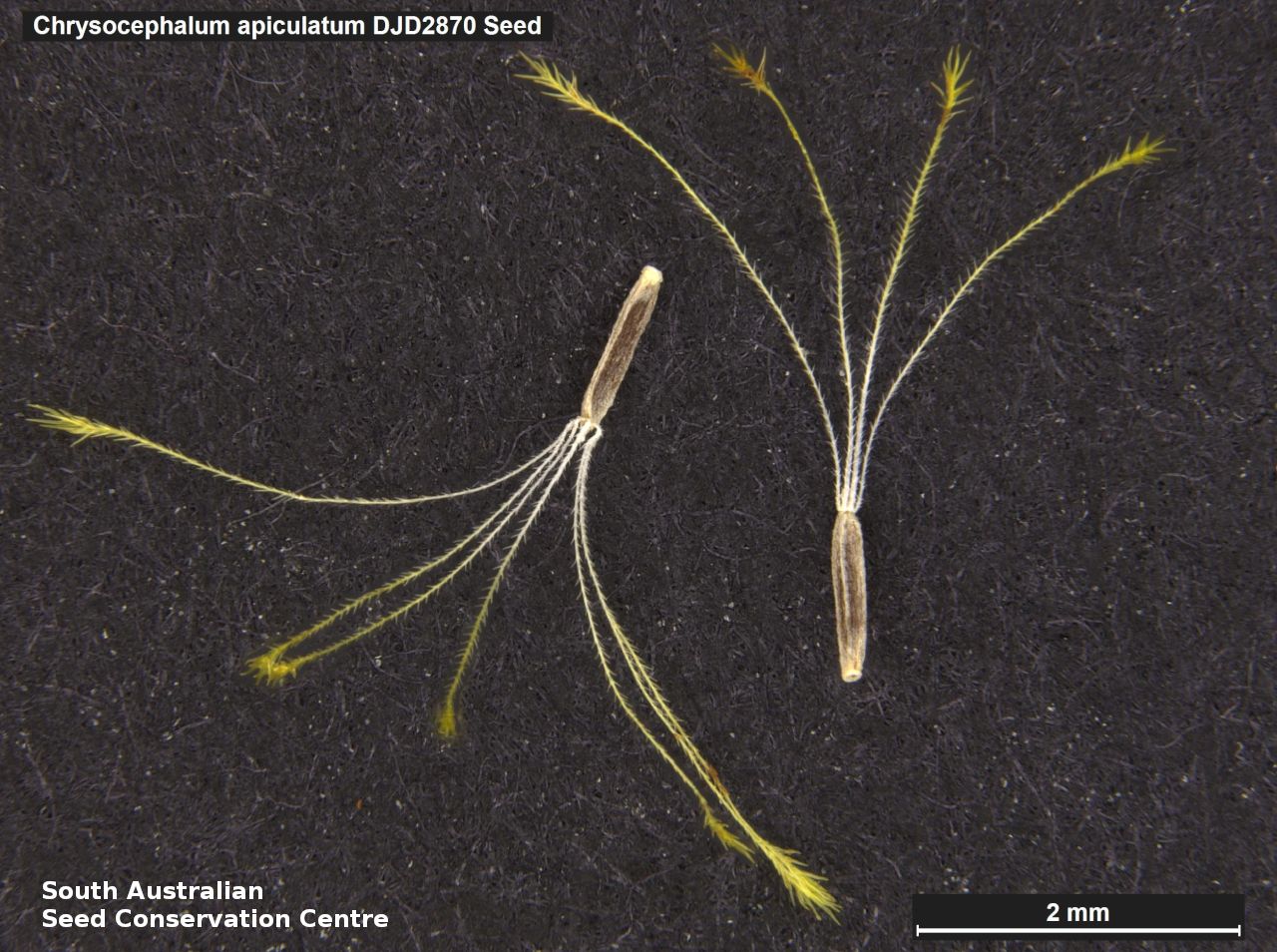

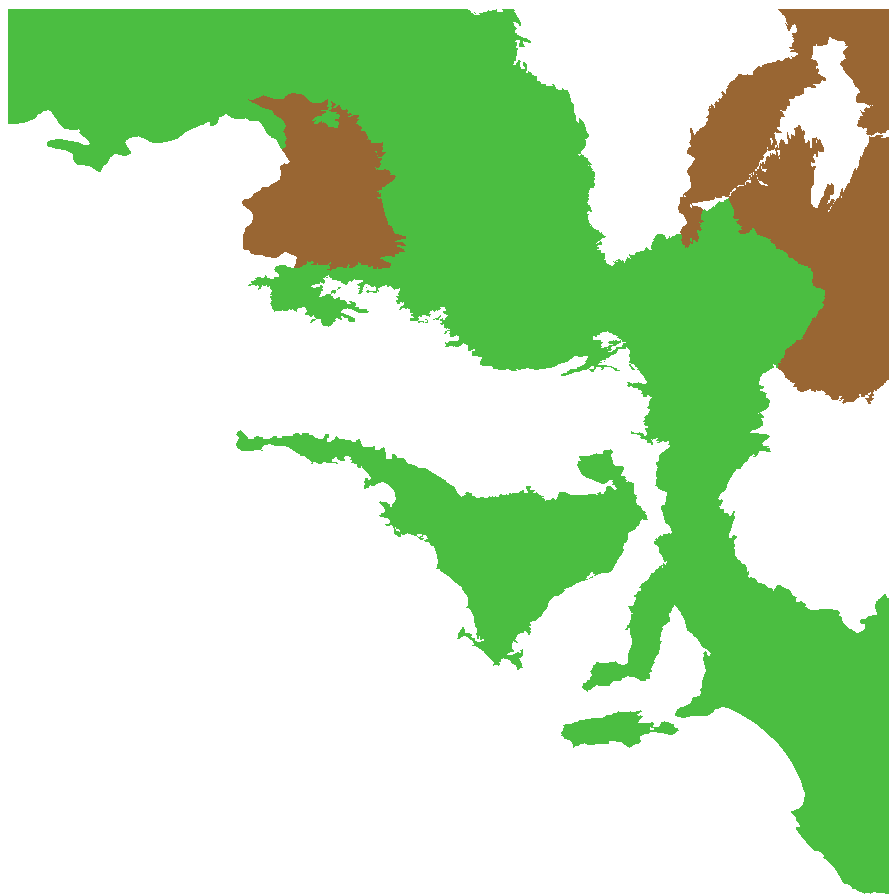
Botanical art
Prior names
Helichrysum apiculatum var. occidentale
Helichrysum apiculatum var. racemosum
Helichrysum apiculatum var. minor
Helichrysum odorum var. odorum
Helichrysum odorum var. arachnoideum
Helichrysum semiamplexicaule
Helichrysum ramosissimum
Gnaphalium apiculatum
Helichrysum apiculatum
Common names
Common Yellow Button
Common Everlasting
Small Yellow Button
Etymology
Chrysocephalum from the Greek 'chryso' meaning golden and 'cephalus' meaning a head, referring to the golden flower heads. Apiculatum from Latin meaning abruptly short point, referring to the leaves ending abruptly in a short point.
Distribution and status
Found across all parts of South Australia growing in many varied situations but usually on open sites. Also found in all States. Native. Common in South Australia. Common in the other States.
Herbarium regions: North Western, Lake Eyre, Nullarbor, Gairdner-Torrens, Flinders Ranges, Eastern, Eyre Peninsula, Northern Lofty, Murray, Yorke Peninsula, Southern Lofty, Kangaroo Island, South Eastern, Green Adelaide
NRM regions: Adelaide and Mount Lofty Ranges, Alinytjara Wilurara, Eyre Peninsula, Kangaroo Island, Northern and Yorke, South Australian Arid Lands, South Australian Murray-Darling Basin, South East
AVH map: SA distribution map (external link)
Plant description
Ascending to erect perennial herb to 60 cm high with stems and branches covered in cottony hairs. Leaves oblanceolate to obovate, to 60 mm long and 25 mm wide; acuminate to rounded apiculate base, often stem-clasping margins; flat or recurved surfaces with cottony hairs, sometimes denser beneath. Flower-heads in terminal clusters with 3 to many golden-yellow or tinged brown daisy flowers. Flowering between August and December. Fruits are pale brown fluffy daisy-head. Seeds are dark brown oblong seed to 1 mm long and 0.2 mm wide with a smooth surface and with long feather-like pappus. Seed embryo type is spatulate.
Seed collection and propagation
Collect seeds between January and November. Collect whole heads that are brown and fluffy or collect just the seeds by plucking it off with your fingers. Mature seeds are easily removed. Place the heads in a tray for a week to dry. Then pluck the seeds from the head with your finders. Viable seeds will be fat and brown. Store the seeds with a desiccant such as dried silica beads or dry rice, in an air tight container in a cool and dry place. Seed viability can be low with many seeds not fully developed. Seeds are non-dormant, viable seed should germinate readily.
| Location | No. of seeds (weight grams) | Number of plants | Date collected | Collection number Collection location | Date stored | % Viability | Storage temperature |
|---|---|---|---|---|---|---|---|
| BGA MSB | 149,600 (8.98 g) 149,600 (8.98 g) | 276 | 18-Dec-2003 | PJA73 Murray | 23-Mar-2006 | -18°C | |
| BGA | 6,000 (1.34 g) | 50+ | 9-Dec-2011 | KHB639 Flinders Ranges | 1-Jan-2016 | 100% | -18°C |
| BGA | 1,100 (0.083 g) | 50+ | 23-Jul-2017 | KHB939 North Western | 30-Jun-2018 | 95% | -18°C |
Number of plants: This is the number of plants from which the seeds were collected.
Collection location: The Herbarium of South Australia's region name.
% Viability: Percentage of filled healthy seeds determined by a cut test or x-ray.